|

HOME |
ABOUT | INDEX |
NEWS |
FACEBOOK |
CONTACT
HEALTH
Healthcare | Medical | Hospital
Trump and the GOP
Denying Healthcare to LGBTQ Community
“When you have the nation’s commander-in-chief
demonizing LGBTQ people, it certainly sends a signal to
all Americans."
-Sarah
Warbelow, Legal Director, Human Rights Campaign
Donald Trump has a well-documented anti-LGBTQ healthcare
history, including his policies and efforts against
access to best practice, lifesaving health care for
lesbian, gay, bisexual, queer, and especially
transgender Americans.
In 2018,
the Trump administration announced the creation of a new
office within the Department of Health and Human
Services to protect religious medical professionals who
wish to discriminate against LGBTQ patients and others.
And in 2020, the Trump administration issued new
regulations that eliminated LGBTQ nondiscrimination
provisions in health care in the Affordable Care Act.


VA Hospital Employees Told Not to Wear
Rainbow Items Because of President’s Order
Puberty Blockers Ban Causing Extensive
Harm to Trans Youth, Study Shows
GLAAD: Donald Trump on LGBTQ Health Care Issues
NPR: LGTBQ Groups Fight Trump’s Attempts to Ban
Gender-Affirming Health Care
PBS: Trump’s Executive Orders are Targeting Transgender
People
Trump Moves to Prohibit Affordable Care Act Plans From
Covering Gender-Affirming Care
NPR: Trump's Ban on Gender-Affirming Care for Young
People Affects Hospitals
Since his
return to office, Trump has committed to more extreme
and far-reaching health care policies in a second
administration.
Trump
declared, "On Day 1, I will sign an executive order
instructing every federal agency to cease the promotion
of sex or gender transition at any age." And
public schools will no longer receive federal funding if
they promote ideas related to gender transitioning or
transgender people.
He even
made it official government policy that there are only
two sexes... Male and female only. No other
options.
Many of
Trump’s executive orders are targeting transgender
people. “We will get transgender insanity the hell out
of our schools, and we will keep men out of women’s
sports,” Trump promised.


In going
after trans troops, the president asserted that being
transgender “conflicts with a soldier’s commitment to an
honorable, truthful, and disciplined lifestyle, even in
one’s personal life.”
Trump has
also said that any hospital or health-care provider that
performs gender-affirming surgeries or care to minors
would no longer meet federal health and safety standards
and will no longer receive funding from the federal
government. "We will ban taxpayer funding for sex change
surgeries and stop Taxpayer-funded Schools from
promoting gender transition," Trump announced.
GLAAD: Donald Trump on LGBTQ Health Care Issues
Puberty Blockers Ban Causing Extensive
Harm to Trans Youth, Study Shows
Judge Pauses Trump’s Order Restricting Healthcare for
Transgender Youth
PBS: Trump’s Executive Orders are Targeting Transgender
People
Trump Moves to Prohibit Affordable Care Act Plans From
Covering Gender-Affirming Care
ACLU: Federal Judge Blocks Trump Order Targeting Medical
Care for Transgender Youth
NPR: Trump's Ban on Gender-Affirming Care for Young
People Affects Hospitals
PBS: Judge Extends Block on Trump’s Plan to Pull Funding
Over Health Care for Trans Youth
NPR: LGTBQ Groups Fight Trump’s Attempts to Ban
Gender-Affirming Health Care
LGBTQ Nation: GOP Governor Vetoes Bill Seeking to
Protect PrEP Users From Insurance Discrimination
20 Years of
Same-Sex Marriage Has Been a Boon to Health
Message From President of American Medical Association
In the
aftermath of a major policy change that moves a system
toward inclusion, it's important to show that the sky
doesn't fall.
For example, as a combat veteran in the US Navy who
deployed to Afghanistan, among other places, I have seen
firsthand how expanding service to LGBTQ people has
significantly strengthened our military and received
vocal, sustained support from a bipartisan array of
leaders.
Now, as we celebrate the 20th anniversary of the freedom
to marry for same-sex couples in parts of our country --
with May 17, 2004 marking the first-ever
state-sanctioned weddings between same-sex couples in
Massachusetts -- we have another opportunity to review
the evidence and see that none of the apocalyptic
predictions came to pass. Instead, the opposite
happened: The health of families was helped, and no one
was harmed.
This week, the Rand Corporation published a new report
presenting one of the most comprehensive evidence
reviews about marriage for same-sex couples. The report
analyzes nearly 100 quantitative studies from over 20
years and underlines the many positive effects of the
freedom to marry -- for same-sex couples, their kids,
and the general population -- with zero adverse effects.

20 Years of Same-Sex Marriage Has Been a Boon to Health
Trump’s Definitions of “Male” and “Female” are Nonsense
Science With Staggering Ramifications
Australia Launches 10 Year Action Plan for LGBTQ Health
1 in 3 LGBTQ Adults Say They’ve Been Treated Unfairly by
a Health Care Provider
Biden Reverses Trump Policy Allowing Doctors to Deny
Care to LGBTQ Patients
Seemingly Harmless Habits That May Increase Your Risk Of
Dementia
LGBTQ Medical Podcast:
Healthlink Pridecast
Health Officials Compare
HIV/AIDs Epidemic to COVID
As the president of the American Medical Association, the nation's largest and most influential
association for physicians, I'm especially heartened by
the impact of marriage equality on greater health
outcomes.
Some of the most important changes have been related to
health insurance: Expanding marriage to same-sex couples
led to a spike in private health insurance coverage
among same-sex couples. After the decision, the number
of same-sex couples in which both members had private
insurance coverage increased from 79% to 88%. Reliance
on Medicaid coverage slightly decreased, and marriage
equality contributed to children of same-sex couples
having access to private insurance. The impact of this
is critical: When people and families are insured, they
are better able to access the services they need and
take care of themselves and their loved ones.
Other benefits are also encouraging, including a reduced
number of emergency department visits among young people
related to sexually transmitted infections (STIs).
Decreasing state-level rates of STIs generates billions
of dollars in savings to the nation's healthcare system
each year. Another especially powerful, affirming
finding is the potential correlation between the freedom
to marry and a reduction in the proportion of high
school students who attempted suicide.
Advocating for the LGBTQ community in the healthcare
field has been one of my greatest professional
accomplishments. In past and current roles, I strive
each and every day to fight against inequities in
healthcare access and ensure that everyone has access to
the same high-quality, effective care. Ensuring that our
healthcare system treats everyone fairly has long been a
professional priority, and I'm committed to doing
everything I can to push forward.
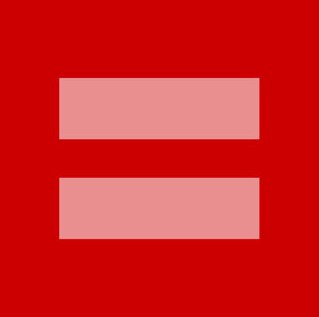
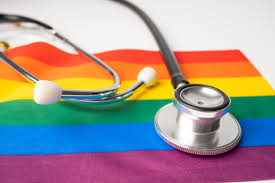
This topic is also deeply personal for me: 7 years ago I
married my husband Judd in Nashville, Tennessee. We are
now the proud parents of two young sons who are the joys
of our life.
Securing the freedom to marry was so important to both
of us. It felt especially important during my deployment
in Afghanistan, prior to the 2015 Supreme Court ruling
in Obergefell v. Hodges that established a national
right to marry. It felt strange putting my life on the
line for the freedoms that we all enjoyed, yet not
having the freedom to marry the man I love. Because of
this inequality, we were left out of important
protections, like the ability for Judd and me to see
each other in case of an emergency or a medical issue.
It is a relief to be raising our boys at a time where
the freedom to marry is available to all people. It's so
clear to me that allowing same-sex couples to marry has
led to so many critical steps forward, contributing
generally to lower stress and greater health outcomes
overall for same-sex couples and their children.
Same-sex couples, their families, and society at large
are better off, and healthier all around, because of the
freedom to marry. On this 20th anniversary of a major
breakthrough, that's something we can all celebrate.
[Source: Jesse Ehrenfeld, MD, MPH, President of American
Medical Association, May 2024]
Menopause and Transgender
Transgender People Report Years of
Battles for Health Insurance Coverage
COVID Cluster Hits
Provincetown
Biden Revives LGBTQ Protections Against Healthcare
Discrimination
US Bans Sex Discrimination Against LGBTQ People in
Healthcare
Five Things to Know for Optimizing LGBTQ
Health
Biden Administration Prohibits Anti-LGBTQ
Health Care Discrimination
LGBTQ America: Health Issues
Biden Reverses
Trump Policy Allowing Doctors to Deny Care to LGBTQ
Patients
The dangerous rule was blocked by the courts, but
President Biden just wiped it off the books
One of former president Donald Trump’s most dangerous
and anti-LGBTQ rules was blocked by federal court for
years, but now it has been officially eliminated and
replaced by the Biden administration. The rule would
allowed doctors and other medical professionals to
refuse to treat patients for religious reasons. Pregnant
women and the LGBTQ community were the targets of the
rule. The workers who could claim a religious exemption
to do their jobs included doctors, nurses, pharmacists,
billing staff, receptionists, and emergency responders.
The US Department of Health and Human Services (HHS)
issued a final rule in Jan 2024 that removed the
possibility. “The so-called ‘Denial of Care Rule,’ which
was issued in May 2019, confronted health care
facilities with the real risk losing essential federal
funding if they did not grant employees carte blanche to
deny services,” Lambda Legal Chief Legal Officer
Jennifer C. Pizer explained. “Because the rule was
confusing and infeasible to implement, many health care
facilities could have been forced to eliminate services
such as reproductive and LGBTQ care, leaving millions
across the United States without access to critical
health care.”
“While the earlier discriminatory and dangerous rule has
been blocked for more than five years, it nonetheless
has loomed ominously over both health care providers and
potential patients, representing the very real threat of
blockages of medical care delivery when patients are
most in need.”
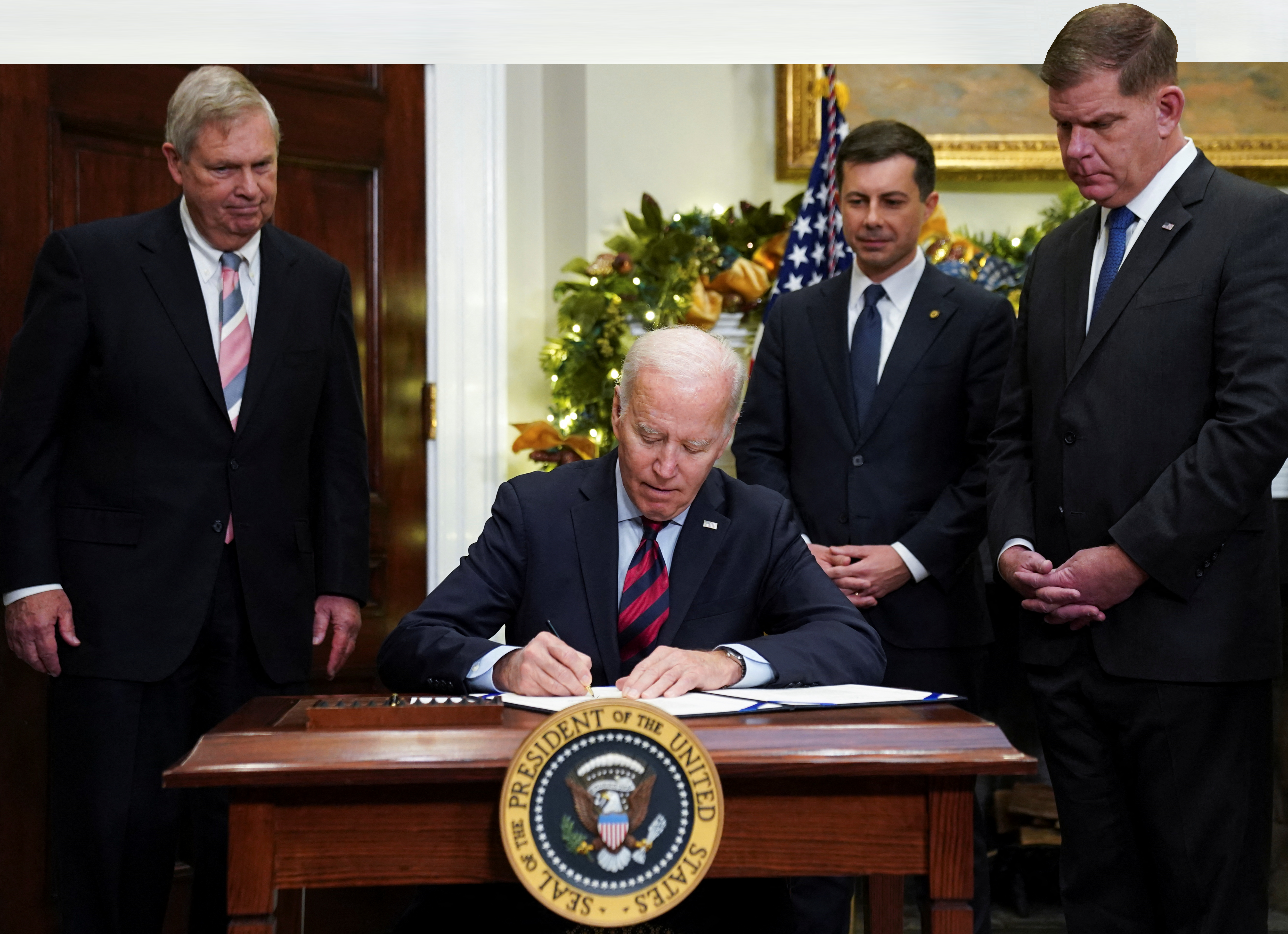
Biden Reverses Policy Allowing Doctors to Deny
Care to LGBTQ Patients
Gender-Affirming Care Access Improves
Mental Health
Heteronormativity in Health Care is
Harmful for LGBTQ Patients
The Science Says It: Gender-Affirming
Care Saves Young Trans Lives
Queer People Face Discrimination in Healthcare
1 in 8 LGBTQ People Live
in States Where Doctors Can Refuse Treatment
Queer Artists Changing Our
View of Sexual Health
Fabulous Approach to Promoting LGBTQ Health
“We are grateful that HHS has removed from the books the
prior rule’s explicit invitation to discriminate against
pregnant people, anyone in need of gender-affirming
medical care, and LGBTQ patients in general, regardless
of their medical needs,” she continued. “No patient– no
matter their religion, sex, race, gender identity, or
sexual orientation – should fear being denied the
medical care they need based on other people’s religious
beliefs.”
Anti-LGBTQ activist Roger Severino formerly led the
HHS’s Office of Civil Rights (OCR) under Trump. He used
the position to push for religious exemptions to civil
rights laws. In his previous role as director of the
DeVos Center for Religion and Civil Society for the
Heritage Foundation, Severino spoke out against the
civil rights protections he was tasked with upholding as
HHS head.
While at the Heritage Foundation, he authored a report
opposing the OCR’s implementation of a portion of the
Affordable Care Act (ACA) known as the 1557 rule, which
prohibited discrimination based on race, color, national
origin, age, disability, and sex in federally-funded
health programs.
Betsy DeVos served as Trump’s head of the Education
Department, where she led efforts to repeal protections
for LGBTQ students and actively make schools more
hostile to them.
[Source: Bil Browning, LGBTQ Nation, January 2024]
1 in 3 LGBTQ Adults Say They’ve Been Treated Unfairly by
a Health Care Provider
MPX Is Back! Here's What Doctors Say You
Need To Know Now
Arkansas Gov Signs
Bill Allowing Docters to Refuse Treatment to
LGBTQ People
Conscience Rule Will Threaten LGBTQ
Healthcare
Special Report: Coronavirus
Pandemic
Jim Parsons and Husband: Coronavirus Couple
LGBTQ People Have Higher Risk of Coronavirus
Here's How You Can Support
the LGBTQ Community

LGBTQ Health Services
Medical Resources for the Queer Community
LGBTQ
Healthlink
Call 954-765-6024
Email
centerlink@lgbtcenters.org
Social
https://www.facebook.com/CenterLink
Podcast
https://creators.spotify.com/pod/profile/healthlink/
Web
https://www.lgbthealthlink.org/
National
LGBT Cancer Network
Call
212-675-2633
Email
info@cancer-network.org
Social
https://www.facebook.com/nationalLGBTcancerNetwork/
Web
https://cancer-network.org/
LGBT
Network: Healthcare Insurance
Call 347-494-1180
Email
healthcare@lgbtnetwork.org
Blues &
Blahs: Mental Health Therapy
Call 203-571-3233
Email
info@bluesandblahs.com
Social
https://www.facebook.com/bluesandblahs
Web
https://bluesandblahs.com/
Folx
Health: Transgender Support
Email
folxsupport@folxhealth.com
Social
https://www.facebook.com/folxhealth
Web
https://www.folxhealth.com/

Gender-Affirming Care Access Improves
Mental Health
1 in 3 LGBTQ Adults Say They’ve Been Treated Unfairly by
a Health Care Provider
Gender-Affirming Hormones: Early Access Linked to Better
Mental Health
Stanford Medicine:
The Pride Study
National LGBTQ Cancer
Network
How Doctors' Assumptions about LGBTQ Patients Can be
Harmful to Their Health
SAMHSA: Top Health Issues for LGBTQ Populations
How Discrimination Impacts LGBTQ Healthcare
US Will Protect Gay And Transgender People Against
Discrimination In Health Care
National LGBTQ Cancer
Network
US Bans Sex Discrimination Against LGBTQ People in
Healthcare
Australia Launches 10 Year Action Plan for LGBTQ Health
Monkeypox Outbreak in Gay Community
The
country's monkeypox outbreak can still be stopped, US
health officials say, despite rising case numbers and so
far limited vaccine supplies.
Update: The World Health Organization will now refer to
"monkeypox" as “mpox.”
The Biden administration's top health official pushed
back against criticism about the pace of the response
and worries that the US has missed the window to contain
the virus, which has been declared a global emergency.
"We believe we have done everything we can at the
federal level to work with our state and local partners
and communities affected to make sure we can stay ahead
of this and end this outbreak," Xavier Becerra, head of
the Department of Health and Human Services, explained.
But he added that local health officials "must do their
part. We don't have the authority to tell them what to
do."
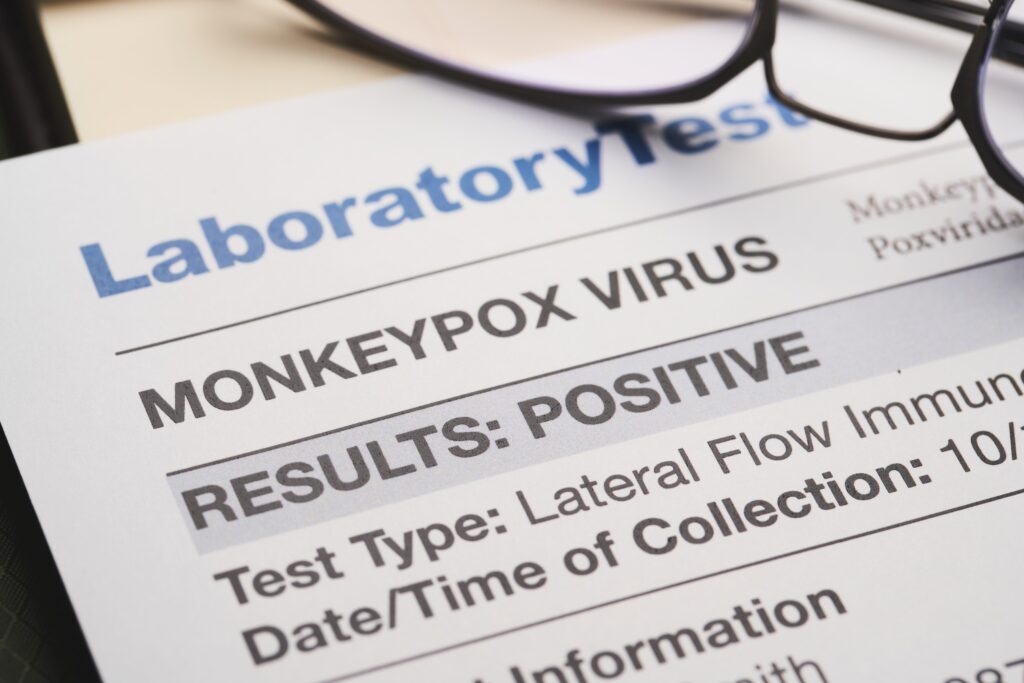
MPX Is Back! Here's What Doctors Say You
Need To Know Now
HRC:
What You Need to Know About Monkeypox
WHO: Key
Facts About Monkeypox
White House Rolls Out Monkeypox Pilot Program at
Charlotte Pride
Dr. Demetre Daskalakis: Monkeypox Response Deputy
Coordinator
Monkeypox: Not a Gay Disease
The pushback from federal leaders came as they announced
distribution plans for 780,000 shots of the two-dose
Jynneos vaccine. The doses will be allocated to states,
cities and other localities based on their case numbers
and the size of their populations that are considered
high-risk for the disease. Health departments in San
Francisco, New York, Washington, DC, and elsewhere say
they still don't have enough shots to meet demand and
have stopped scheduling appointments for second vaccine
doses to stretch supplies.
"Clinics around the country are pleading with federal
health officials for the information, supplies and
staffing they need to successfully bring an end to this
outbreak," said David C. Harvey, executive director of
the National Coalition of STD Directors, in a statement.
The group is pressing for $100 million in emergency
funding for local health departments and clinics.
The US is now capable of testing 60,000 to 80,000 people
per day, though Becerra said daily testing numbers are
well below that.
There were more than 4,600 reported monkeypox cases in
the US as of July 2022, according to the CDC, and
federal officials expect those numbers to rise. More
than 99% of reported cases are in men and the vast
majority of those are among men who reported sexual
contact with other men, though health officials have
stressed that anyone can catch the virus.
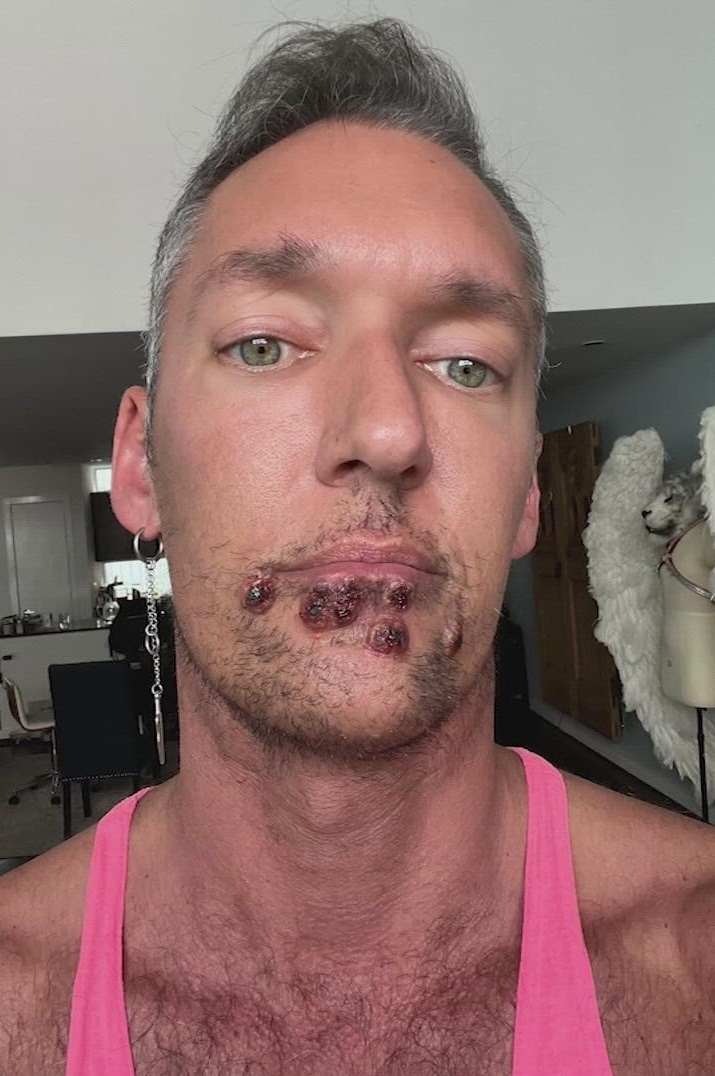
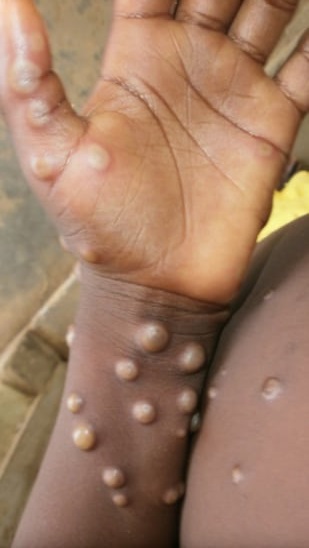
White House Monkeypox Response Team Gives Update to
LGBTQ Community
Gay Monkeypox Patients Speak of Pain and Loneliness
Monkeypox Crisis: Difference Between Warning and
Stigmatizing Gay People
Monkeypox Explained: How to Protect Yourself and What to
Watch Out for
New Orleans Braces for Superspreader
Event as Monkeypox Vaccine Remains Scarce
Life After Monkeypox: Men Describe Uncertain Road to
Recovery
The monkeypox virus mainly spreads through skin-on-skin
contact, but it can also transmit through touching
linens used by someone with the infection. People with
monkeypox may experience fever, body aches, chills and
fatigue. Many in the outbreak have developed
sometimes-painful zit-like bumps.
The US has ordered 5.5 million more vaccine doses for
delivery by mid-2023 and has rights to the raw
ingredients that could make 11.1 million more doses. US
officials said a massive vaccination campaign could
still be avoided if communities and individuals take
measures to avoid spread.
In San Francisco, Tom Temprano had an appointment to get
his second dose next week but was recently notified that
it was canceled due to limited supplies. Temprano, who
is the political director of San Francisco-based
Equality California, said he's frustrated that health
authorities have taken so long to respond. "Especially
coming out of, still, two-and-a-half years into a
pandemic, it's just a very disappointing response for
the first larger-scale public health crisis we're facing
coming out of that," he said.
He also sees parallels to the slow government response
to AIDS in the 1980s. "I've heard from many folks that
this feels similar in the lack of real concern and
urgency to a disease that is right now
disproportionately impacting the LGBTQ community," said
Temprano, who is 36.
The CDC estimates about 1.5 million Americans currently
meet suggested criteria for vaccination, primarily men
who have sex with men.
[Source: Associated Press, July 2022]
1 in 3 LGBTQ Adults Say They’ve Been Treated Unfairly by
a Health Care Provider
Biden Reverses Trump Policy Allowing Doctors to Deny
Care to LGBTQ Patients
Seemingly Harmless Habits That May Increase Your Risk Of
Dementia
LGBTQ Medical Podcast:
Healthlink Pridecast
Menopause and Transgender
Health Officials Compare
HIV/AIDs Epidemic to COVID
Transgender People Report Years of
Battles for Health Insurance Coverage
COVID Cluster Hits
Provincetown
Biden Revives LGBTQ Protections Against Healthcare
Discrimination
US Bans Sex Discrimination Against LGBTQ People in
Healthcare
Five Things to Know for Optimizing LGBTQ
Health
Biden Administration Prohibits Anti-LGBTQ
Health Care Discrimination
LGBTQ America: Health Issues
Biden Bans Discrimination Against LGBTQ
People in Healthcare
"No one
should ever be denied access to health care because of
their sexual orientation or gender identity."
-President Joe Biden
The US
will protect gay and transgender people against sex
discrimination in healthcare, the Biden administration
announced in May 2021, reversing a Trump-era policy that
sought to narrow the scope of legal rights in sensitive
situations involving medical care.
The action by the Department of Health and Human
Services (HHS) affirms that federal laws forbidding sex
discrimination in healthcare also protect gay and
transgender people.
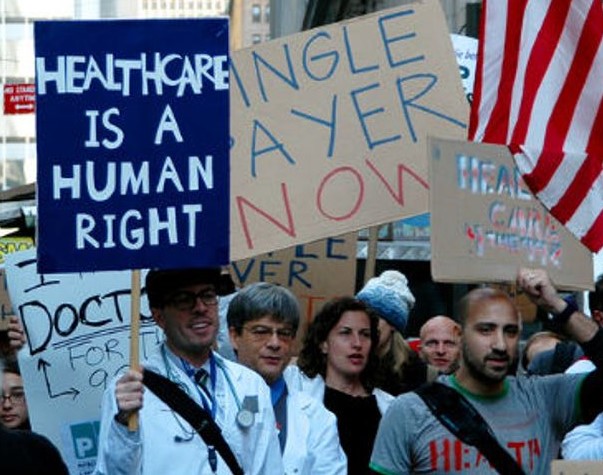

Biden Revives LGBTQ Protections Against Healthcare
Discrimination
US Bans Sex Discrimination Against LGBTQ People in
Healthcare
Transgender People Report Years of
Battles for Health Insurance Coverage
Biden Administration Prohibits Anti-LGBTQ
Health Care Discrimination
Arkansas Governor Signs
Bill Allowing Medical Workers to Refuse Treatment to
LGBTQ People
Conscience Rule Will Threaten LGBTQ
Healthcare
Hospitals Make Tremendous
Strides Toward LGBTQ Inclusive Care
Trump's Military Ban Ignores Science to
Inflict Harm
Transgender Health Protections Reversed By Trump
Administration
Trump Administration Exacerbating LGBTQ Healthcare
Discrimination
The Trump administration had defined “sex” to mean
gender assigned at birth, thereby excluding transgender
people from the law’s umbrella of protection.
“Fear of discrimination can lead individuals to forgo
care, which can have serious negative health
consequences,“ the HHS secretary, Xavier Becerra, said
in a statement. “Everyone – including LGBTQ people –
should be able to access healthcare, free from
discrimination or interference, period.”
Becerra said the Biden administration policy will bring
HHS into line with a landmark supreme court decision
last year in a workplace discrimination case, which
established that federal laws against sex discrimination
on the job also protect gay and transgender people.
Despite that ruling, the Trump administration proceeded
to try to narrow the legal protections against
healthcare discrimination, issuing rules that narrowly
defined “sex” as biological gender. A federal judge had
blocked those rules from taking effect, although Trump
administration officials argued that as a legal matter
healthcare discrimination was a separate issue from the
employment case the supreme court decided.
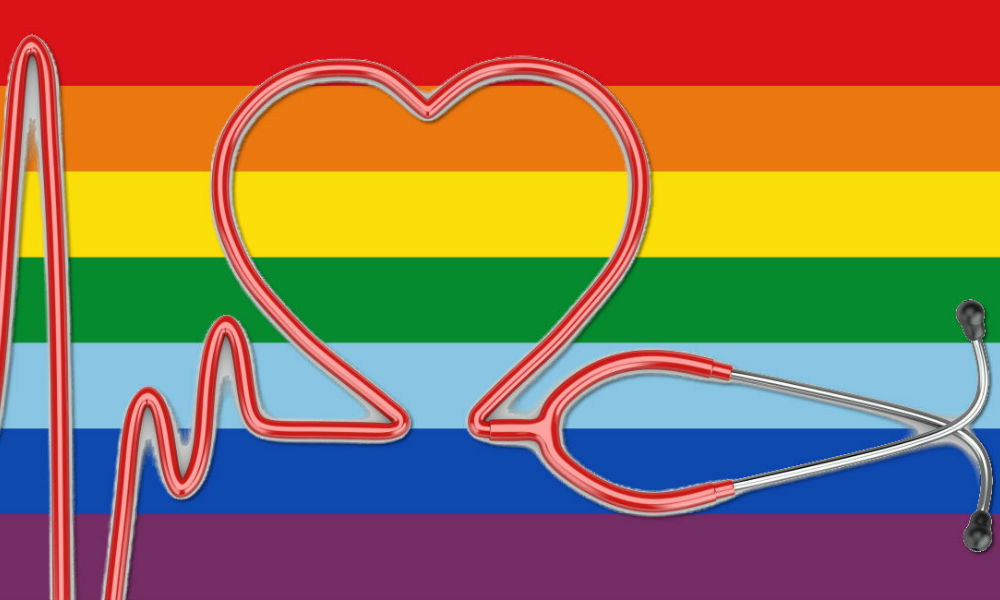
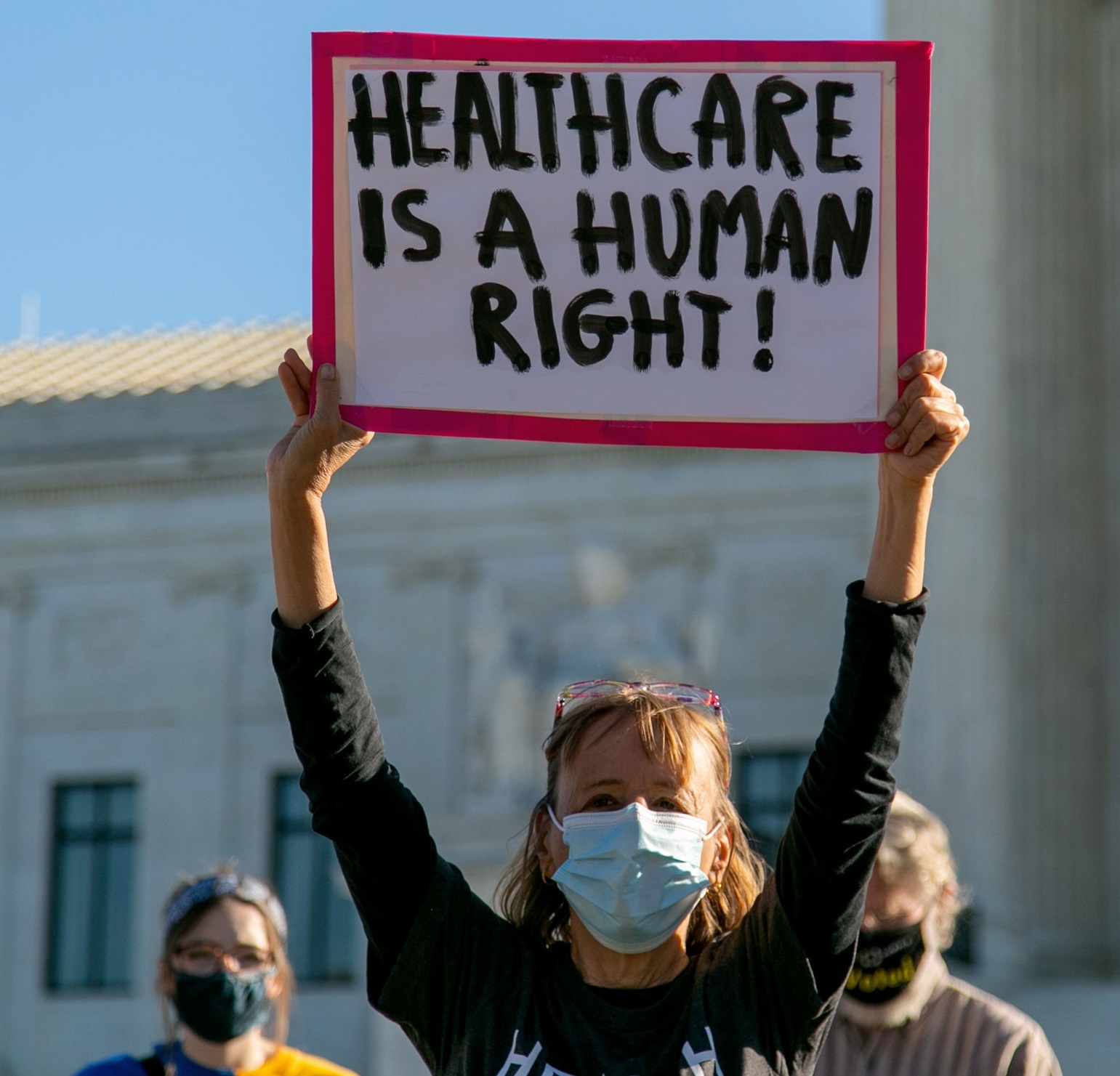

The action means that the HHS Office for Civil Rights
will again investigate complaints of sex discrimination
on the basis of sexual orientation and gender identity.
Hospitals, clinics and other medical providers can face
government sanctions for violations of the law.
The Biden administration action essentially restores
policy established during the Obama years. The
Affordable Care Act included a prohibition on sex
discrimination in healthcare and the Obama
administration had interpreted that to apply to gay and
transgender people as well. It relied on a broad
understanding of sex shaped by a person’s inner sense of
being male, female, neither or a combination.
[Source: Associated Press, May 2021]
1 in 3 LGBTQ Adults Say They’ve Been Treated Unfairly by
a Health Care Provider
Gender-Affirming Care Access Improves
Mental Health
Heteronormativity in Health Care is
Harmful for LGBTQ Patients
Stanford Medicine:
The Pride Study
Five Things to Know for Optimizing LGBTQ
Health
Advocate Mag: LGBTQ Friendly Hospitals
Menopause and Transgender
High Rates
of Depression Among Rural LGBTQ
Population
Info: Alcohol/Drug Abuse
Queer
Artists Changing Our View of Sexual
Health
LGBTQ Wellness: Take
Pride in Your Health
Biden Revives LGBTQ Protections Against
Healthcare Discrimination
"So now
it's clear. There is no ambiguity. You cannot
discriminate against people based on sexual orientation
or gender identity."
-Health &
Human Services Secretary Xavier Becerra
Gay and
transgender people will be protected against sex
discrimination in healthcare, the US health secretary
said in May 2021, as President Joe Biden’s
administration reversed a policy put in place under his
predecessor Donald Trump.
Health and Human Services Secretary Xavier Becerra said
the action restores protections under a provision of the
Affordable Care Act, also known as Obamacare, against
sexual discrimination in healthcare. It was the latest
in a series of steps the Democratic president has taken
to bolster LGBTQ rights.
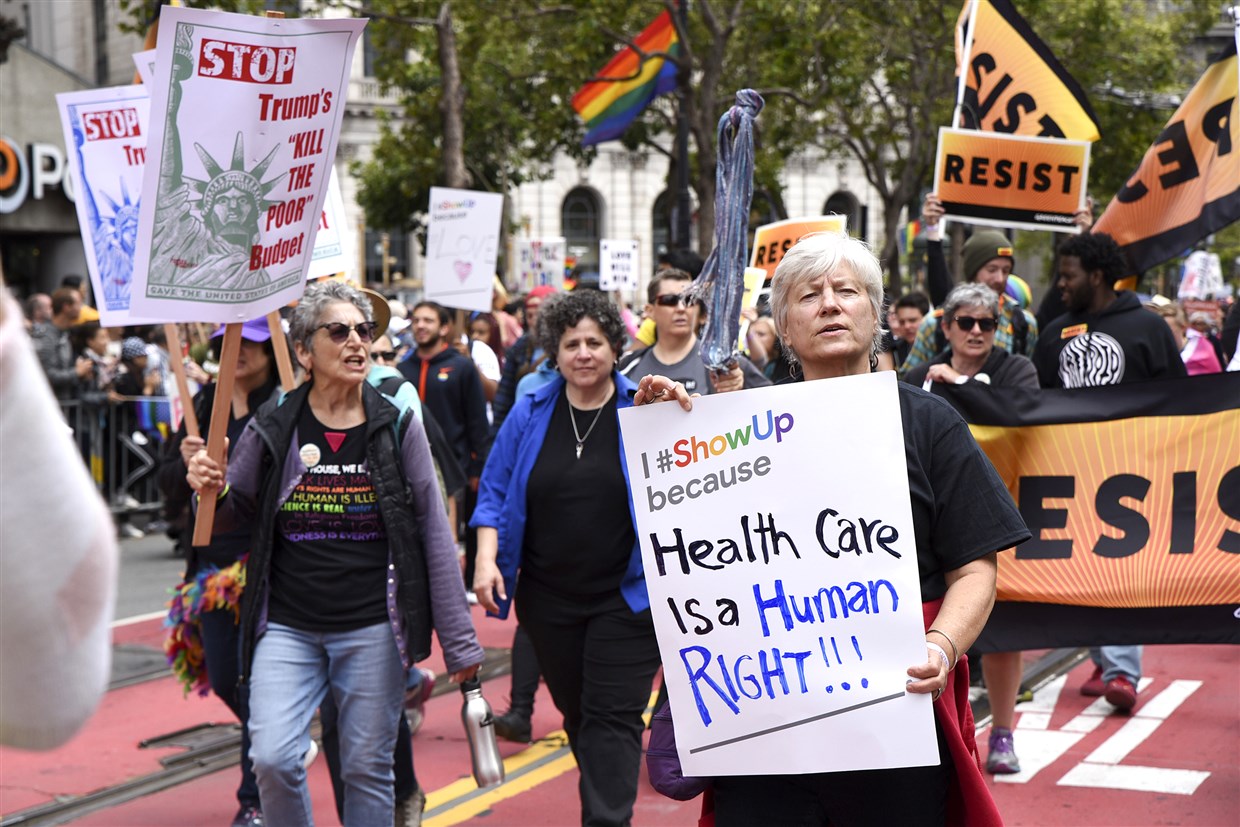
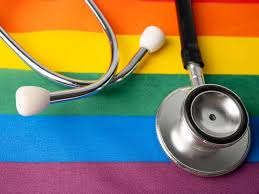
"It simply says what everyone already should know: You
should not discriminate against people," Becerra told
CNN. "That includes those based on sexual orientation or
gender identity and when it comes to healthcare - we
want to make sure that's the case."
The new policy represents a reversal of a reversal. HHS
under Trump in June 2020 issued a rule that lifted some
anti-discrimination protections under the Affordable
Care Act, a law signed by former President Barack Obama
in 2010.
In 2016, Obama's administration introduced rules that
made clear that LGBTQ people would be protected under
the federal healthcare discrimination provision. The
Trump-era rule reversed those provisions of the law that
extended civil rights protections in healthcare to cover
areas including gender identity and abortion.
"So now it's clear, there's no ambiguity: You cannot
discriminate against people based on sexual orientation
or gender identity," Becerra added.
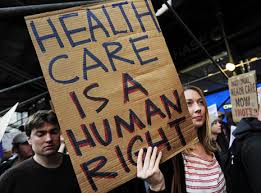

Biden Revives LGBTQ Protections Against Healthcare
Discrimination
US Bans Sex Discrimination Against LGBTQ People in
Healthcare
Biden Administration Prohibits Anti-LGBTQ
Health Care Discrimination
Arkansas Governor Signs
Bill Allowing Medical Workers to Refuse Treatment to
LGBTQ People
Conscience Rule Will Threaten LGBTQ
Healthcare
Hospitals Make Tremendous
Strides Toward LGBTQ Inclusive Care
Trump's Military Ban Ignores Science to
Inflict Harm
Transgender Health Protections Reversed By Trump
Administration
Trump Administration Exacerbating LGBTQ Healthcare
Discrimination
Australia Launches 10 Year Action Plan for LGBTQ Health
HHS said in a statement that its Office for Civil Rights
made the decision in light of a June 2020 US Supreme
Court ruling and subsequent court decisions. The Supreme
Court last year delivered a watershed victory for LGBTQ
rights and a defeat for Trump's administration, ruling
that a longstanding federal law barring workplace
discrimination protects gay and transgender employees.
"The Supreme Court has made clear that people have a
right not to be discriminated against on the basis of
sex and receive equal treatment under the law, no matter
their gender identity or sexual orientation," Becerra
said in the statement.
House of Representatives Speaker Nancy Pelosi, a
Democrat, praised the administration's step and called
Trump's LGBTQ action in the middle of the coronavirus
pandemic "an act of senseless and staggering cruelty."
The issue of transgender rights has become a flashpoint
in the US culture wars, with Republicans at the state
level pursuing measures targeting transgender people.
Such bills have been introduced in about 28 states so
far this year, according to the Southern Poverty Law
Center advocacy group.
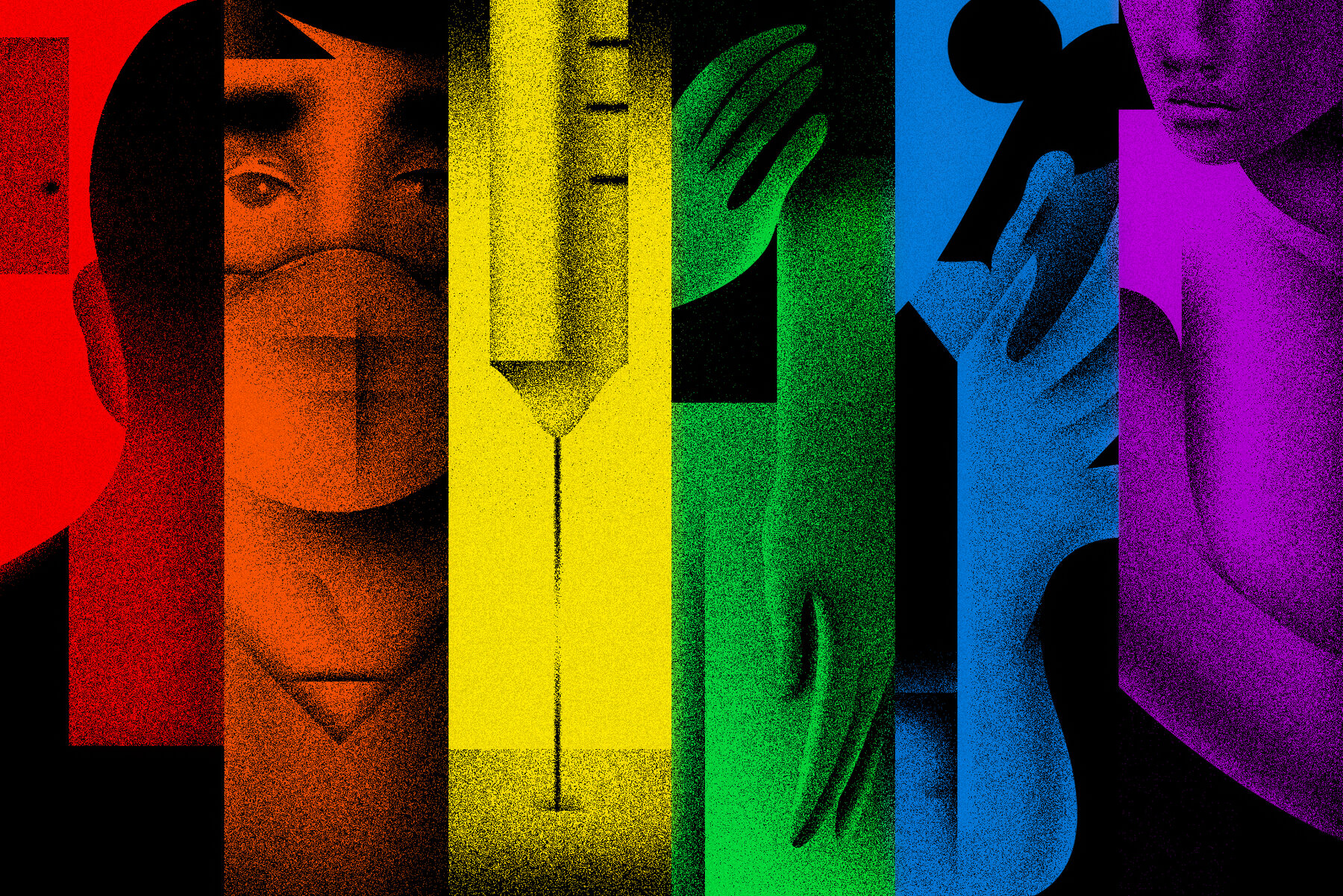
"With healthcare for transgender youth under attack by
state legislatures, this move to protect LGBTQ people
from discrimination in healthcare is critical," the
American Civil Liberties Union said. "It's unfortunate
that such an obvious step had to be taken; the AMA
welcomes this common-sense understanding of the law,"
added American Medical Association President Susan
Bailey.
Biden, who took office in January 2021, has sought to
overturn other Trump policies limiting the rights of
LGBTQ Americans. Biden has reversed his Republican
predecessor’s ban on transgender people serving in the
US military, issued an executive order that extends
existing federal nondiscrimination protections to LGBTQ
people and issued a presidential memorandum aimed at
expanding protection of the rights of LGBTQ people
worldwide.
[Source: Doina Chiacu, Reuters, May 2021]
Seemingly Harmless Habits That May Increase Your Risk Of
Dementia
Dr. Anthony Fauci: 40
Years of HIV/AIDS
How Discrimination Impacts LGBTQ Healthcare
Heteronormativity in Health Care is
Harmful for LGBTQ Patients
LGBTQ Youth Need to Be Counted
UN and WHO: COVID 19 May
Caused 500K HIV-Related Deaths
Love and Compassion: Recognizing LGBTQ Nurses Fighting
Coronavirus
HRC: Healthcare
Equality Index 2018
World Health Organization: Transgender Not a Disorder
LGBTQ Medical Podcast:
Healthlink Pridecast
Info: People Living With AIDS/HIV
Folx Health
Five Things to
Know for Optimizing LGBTQ Health
1. LGBTQ healthcare needs and concerns aren’t
monolithic. Just as straight people don’t all share the
same health experiences, neither do LGBTQ individuals.
The healthcare system needs to consider all the various
and individual factors that make up health, wellness,
and experience in ways that aren’t identity-defining or
diagnosis-limiting.
For example, transgender people may face barriers to
specific health care needs like hormone therapy that
cisgender people do not. And HIV positive gay and
bisexual men are more than the sum total of their viral
loads. There are just as many specific health needs of
LGBTQ+ people as there are LGBTQ people, which is about
10 million American adults according to recent surveys.
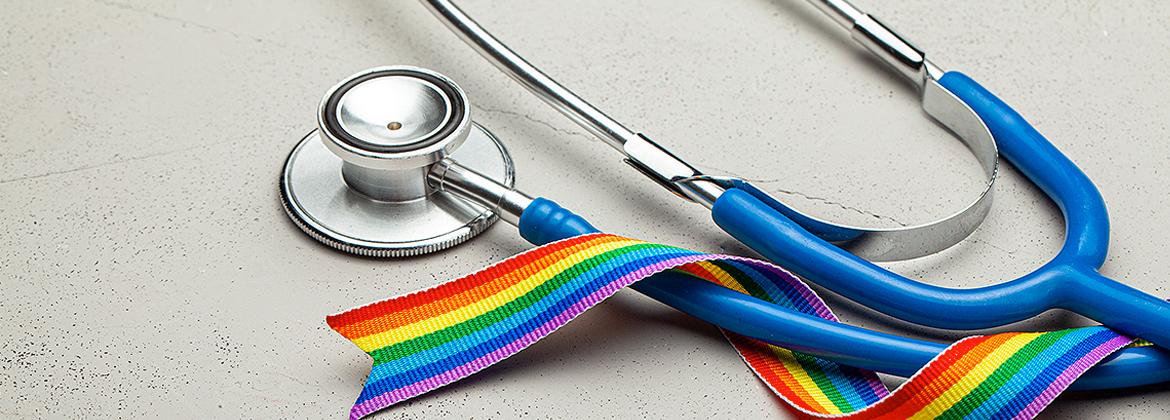
2. Youth
homelessness, substance use disorders, and suicide
disproportionately affect LGBTQ individuals. LGBTQ youth
experience more homelessness with far greater risks to
their health, such as substance use and suicidality,
than their cisgender, heterosexual peers. Black and
Hispanic youth in particular are overrepresented among
unstably housed LGBTQ youth, with racial discrimination
further compounding the effects of sexual
orientation-based discrimination.
Stigma and lack of mental health provider training also
serve as barriers to consistent, high-quality medical
care and supportive services for this vulnerable
population.
3. Ongoing medical education can help healthcare
providers reach LGBTQ and other underserved populations.
Despite great strides in LGBTQ visibility and rights
over the last decade, healthcare access remains an arena
where LGBTQ people continue to face biases and other
barriers to health. Continuing medical education that
trains providers about the specific healthcare needs of
LGBTQ communities can improve the ways providers
integrate culturally competent and accessible care.
The same goes for the training of office staff. From the
front desk to the billing department, the more that
staff are trained about the specific needs of their
patients, the more welcoming and effective these access
points become.
Gender-Affirming Care Access Improves
Mental Health
1 in 3 LGBTQ Adults Say They’ve Been Treated Unfairly by
a Health Care Provider
Gender-Affirming Hormones: Early Access Linked to Better
Mental Health
Stanford Medicine:
The Pride Study
National LGBTQ Cancer
Network
How Doctors' Assumptions about LGBTQ Patients Can be
Harmful to Their Health
SAMHSA: Top Health Issues for LGBTQ Populations
How Discrimination Impacts LGBTQ Healthcare
US Will Protect Gay And Transgender People Against
Discrimination In Health Care
National LGBTQ Cancer
Network
US Bans Sex Discrimination Against LGBTQ People in
Healthcare
Australia Launches 10 Year Action Plan for LGBTQ Health
Menopause and Transgender
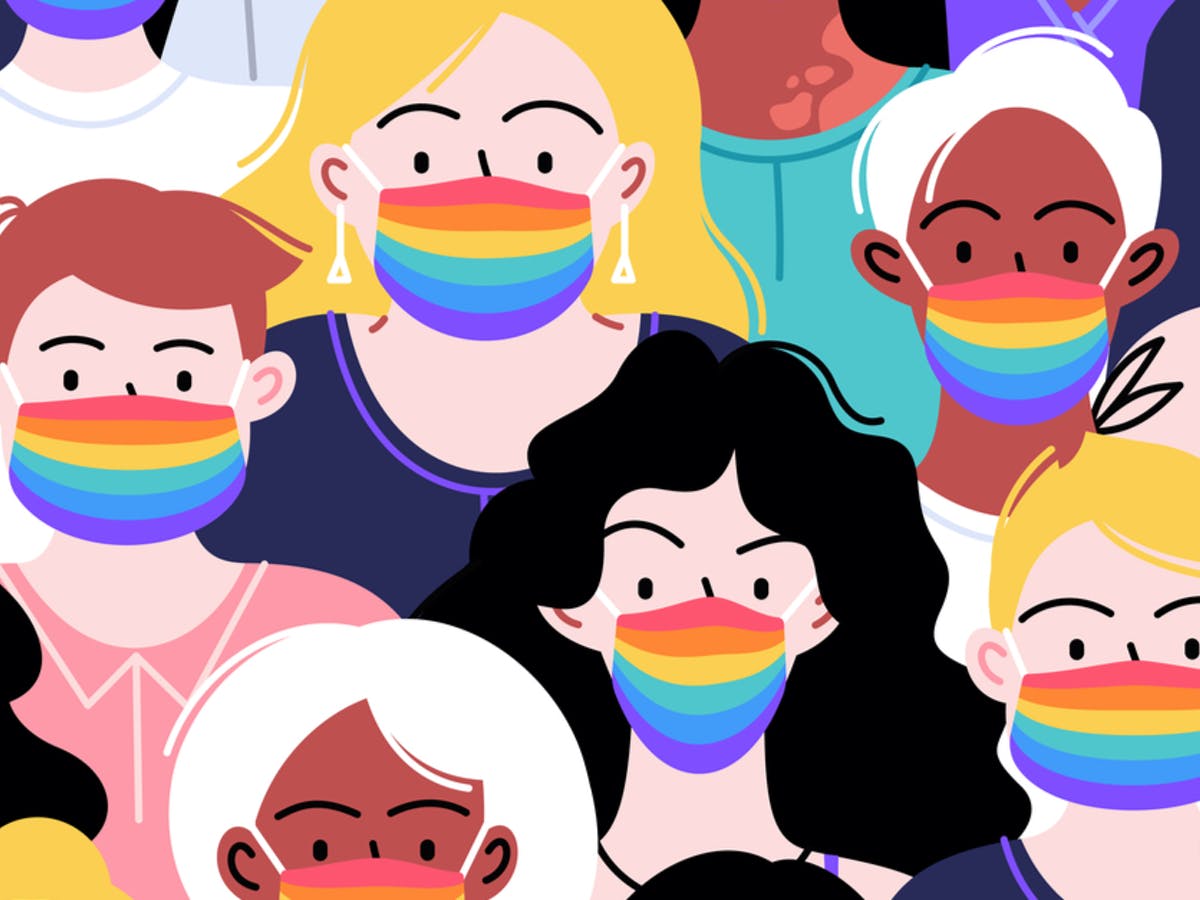
4. Social support and mental health are vital.
Mental and behavioral health matters as much as clinical
and physical health, and LGBTQ individuals are more
likely to experience bullying and discrimination based
on sexual orientation, gender identity, and gender
expression. LGBTQ community organizations, mental health
services, and advocacy efforts that spearhead acceptance
and affirmation go a long way towards normalizing LGBTQ
people’s health needs. Achieving health equity is a
synchronous endeavor that requires care for the whole
person.
5. LGBTQ health outcomes align with public policy.
Historically, LGBTQ individuals have had few legal
protections from discrimination when seeking healthcare.
The Equality Act, passed by the House of Representatives
in February 2021, would uniformly apply an
anti-discrimination law to services and programs
receiving federal funding in all states. If signed into
law, healthcare providers would be required to provide
the same standard of care to all patients regardless of
sexual orientation or gender identity.
The Equality Act faces a challenge in a senate that is
split by party lines, and it’s unclear whether it has
the support to cross the President’s desk. If you want
to get involved, contact your senator’s offices and let
them know you support LGBTQ health.
[Source: Brian Hujdich, Executive Director, National
Coalition for LGBTQ Health, June 2021]
Stanford Medicine:
The Pride Study
Heteronormativity in Health Care is
Harmful for LGBTQ Patients
LGBTQ Wellness: Take Pride in Your Health
Nurse's Guide to Caring for LGBTQ
Patients
NBC News: Hospitals Make Tremendous
Strides Toward LGBTQ Inclusive Care
LGBTQ Healthcare: To Treat Me, You Have
to Know Who I Am
Surgeon General Says LGBTQ Youth Should
be a Priority
LGBTQ
Medical Podcast: Healthlink Pridecast
Seemingly
Harmless Habits That May Increase Your Risk Of Dementia
Your Risk Of Dementia...
These common behaviors could be affecting your brain
health....
Dementia is the loss of memory, language,
problem-solving and other abilities that require
thinking. It is often caused by Alzheimer’s disease, and
mainly affects those 65 and older. Unfortunately,
dementia can be severe enough that it interferes with
daily life, and those who have dementia often require
additional care.
“Dementia is a group of conditions characterized by
impairment of at least two brain functions, such as
judgment and memory loss,” explained Blair Steel, a
psychologist at Carrara Treatment, Wellness & Spa.
“Symptoms of dementia include forgetfulness, limited
social skills and impairment in thinking that interferes
with daily functioning.”
So what causes dementia? Your age, family history, race
and ethnicity, heart health and history of a traumatic
brain injury are all factors that increase your risk of
developing the condition. But another big category is
lifestyle habits. So while you can’t control your
genetics, there are a few seemingly harmless behaviors
you may be doing that can increase your risk.
Working Toward Inclusive Oncology
Dr. Demetre Daskalakis: Monkeypox Response Deputy
Coordinator
SAMHSA: Top Health Issues for LGBTQ Populations
More Than One-Third of Trans Kids Are at
Risk of Losing Gender-Affirming Care
National
LGBTQ Cancer Network
Info: LGBTQ
Mental Health and Wellness
Foundation for Better
Understanding: The Health of LGBTQ
People
Folx Health
LGBTQ Wellness: Take Pride in Your Health
APA: Sexual and Gender Minority Health
Advancing Healthcare for the LGBTQ
Community
1 in 3 LGBTQ Adults Say They’ve Been Treated Unfairly by
a Health Care Provider
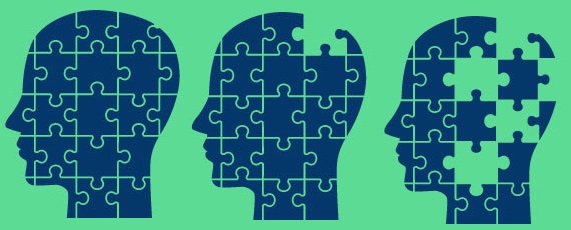
Not moving your body enough or sitting for too
long...
Exercising
― aerobic exercise, especially ― can help reduce
cognitive impairment and dementia risk. Long-term,
regular exercise can affect your brain and your overall
health in a positive way, especially if you’re nearing
60. Getting your body moving daily is something you can
do to decrease your risk of dementia.
Steel said “being inactive does a number on the brain.”
Just like other muscles, a good thing to remember is,
“If you don’t use it, you lose it.”
Not socializing enough...
Social health plays a role in the development of
dementia; an active and socially integrated lifestyle
can protect against the disease. Stimulating the brain
with social interaction is important for everyone,
especially as they age. Though, in the age of social
media, socializing has become a broader term.
“We spend a lot of hours on social media, however this
likely does not stimulate the brain’s experience of
connection as much as socializing in person,” Steel
explained.
Poor social health can overstimulate the body’s stress
response through increased levels of the stress hormone
cortisol, raise blood pressure and decrease blood flow
to vital organs amongst other health issues.
Five Things to Know for Optimizing LGBTQ
Health
Seemingly Harmless Habits That May Increase Your Risk Of
Dementia
Queer Artists Changing Our
View of Sexual Health
Biden Administration Prohibits Anti-LGBTQ
Health Care Discrimination
Here's How You Can Support
the LGBTQ Community
LGBTQ America: Health Issues
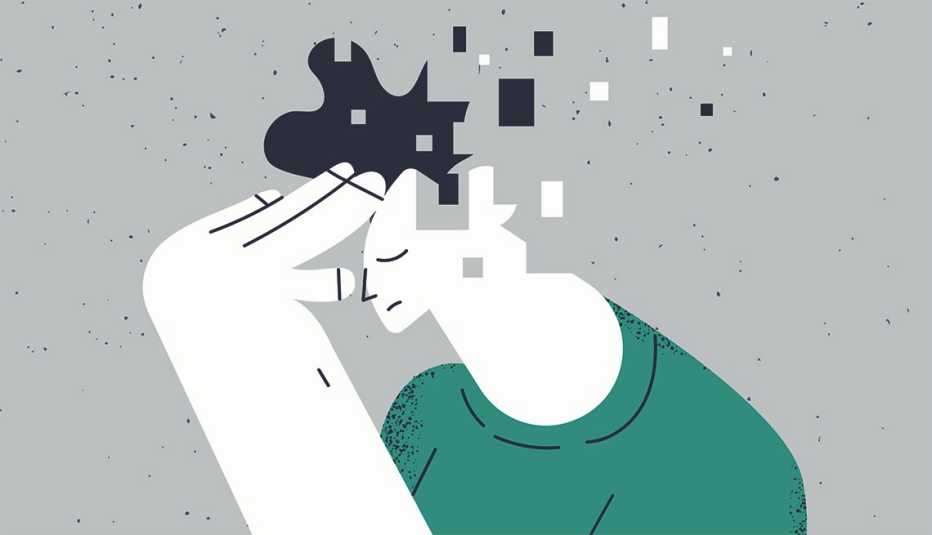
Getting inadequate sleep...
Sleep disturbances and dementia are two common and
significant health problems in older adults. (Let’s face
it, sleep tends to be put on the back burner.) Whether
due to family obligations, work or staying up late on
your phone or watching TV, there’s always something in
the way of adequate sleep.
Unfortunately, sleep patterns in earlier life may
contribute to later problems. If you’re having trouble
sleeping, or not sleeping at all, sleep deprivation
could increase your dementia risk.
“Avoid screens and light after a certain hour and try to
not reach for your phone if your sleep is interrupted,”
Steel suggested. Try unplugging at least 30 minutes
before bed.
Being chronically stressed...
According to the Alzheimer’s Society, stress is linked
to dementia because when you’re stressed and cortisol is
released, it can create problems with your memory. The
negative effects of stress, particularly chronic stress,
on the brain can lead to cognitive decline due to
prolonged elevations of cortisol — which plays an
important role in how your body responds to stress.
Working to reduce your stress through healthy habits can
be key to mitigating this risk. Exercise, creative
activities or hobbies, spending time with loved ones,
meditation, watching a good show or reading a good book
can all help you relax.
Additionally, “try to be flexible with your reactions
and avoid the ‘my way or the highway’ mentality, which
can be common in older adults,” Steel said.
More Than One-Third of Trans Kids Are at
Risk of Losing Gender-Affirming Care
Nurse's Guide to Caring for LGBTQ
Patients
NBC News: Hospitals Make Tremendous
Strides Toward LGBTQ Inclusive Care
Trump's Military Ban Ignores Science to
Inflict Harm
LGBTQ Healthcare: To Treat Me, You Have
to Know Who I Am
Surgeon General Says LGBTQ Youth Should
be a Priority
LGBTQ Healthcare Publications: National
LGBTQ Health Education Center
Advancing Healthcare for the LGBTQ
Community

Consuming excessive amounts of alcohol...
The Alzheimer’s Society also says there’s a specific
type of alcohol-related dementia that is considered
alcohol-related brain damage (ARBD). This is due to the
damage of the brain caused by drinking too much alcohol
on a regular basis, usually over many years.
Those with this type of dementia may have issues like
cooking a meal, remembering things, thinking things
through, and even struggle with more complex tasks like
managing finances.
Eating an unbalanced diet...
Research shows a diet high in ultra-processed foods can
increase dementia risk in adults. While no one’s diet is
perfect, ensuring that the majority of the time you are
sticking with well-balanced, healthy meals can be
extremely beneficial.
Try eating leafy greens, berries, whole grains, beans,
nuts, fish, and healthy fats like olive oil while
limiting red meat, sweets, cheese, butter, and fast and
fried food. These are healthy options that optimize your
brain health.
You can lower your risk of dementia by altering the
habits mentioned above, but you should also speak to a
doctor if you’re struggling with your cognition.
“If you or a loved one is experiencing signs of
dementia, it is important to speak to a doctor and get
an assessment,” Steel said. Your primary care physician
will be able to assess you, and if needed, refer you to
a specialist.
[Source: Sydney Wingfield, Huff Post, Jan 2024]
Stanford Medicine:
The Pride Study
LGBTQ Youth Need to Be Counted
Five Things to Know for Optimizing LGBTQ
Health
Nurse's Guide to Caring for LGBTQ
Patients
More Than One-Third of
Trans Kids Are at Risk of Losing
Gender-Affirming Care
Conscience Rule Will Threaten LGBTQ
Healthcare
National LGBTQ Cancer
Network
SAMHSA: Top Health Issues for LGBTQ Populations
Seemingly Harmless Habits That May Increase Your Risk Of
Dementia
Creating LGBTQ Friendly
Communities in Healthcare and Education
Info: LGBTQ Mental Health
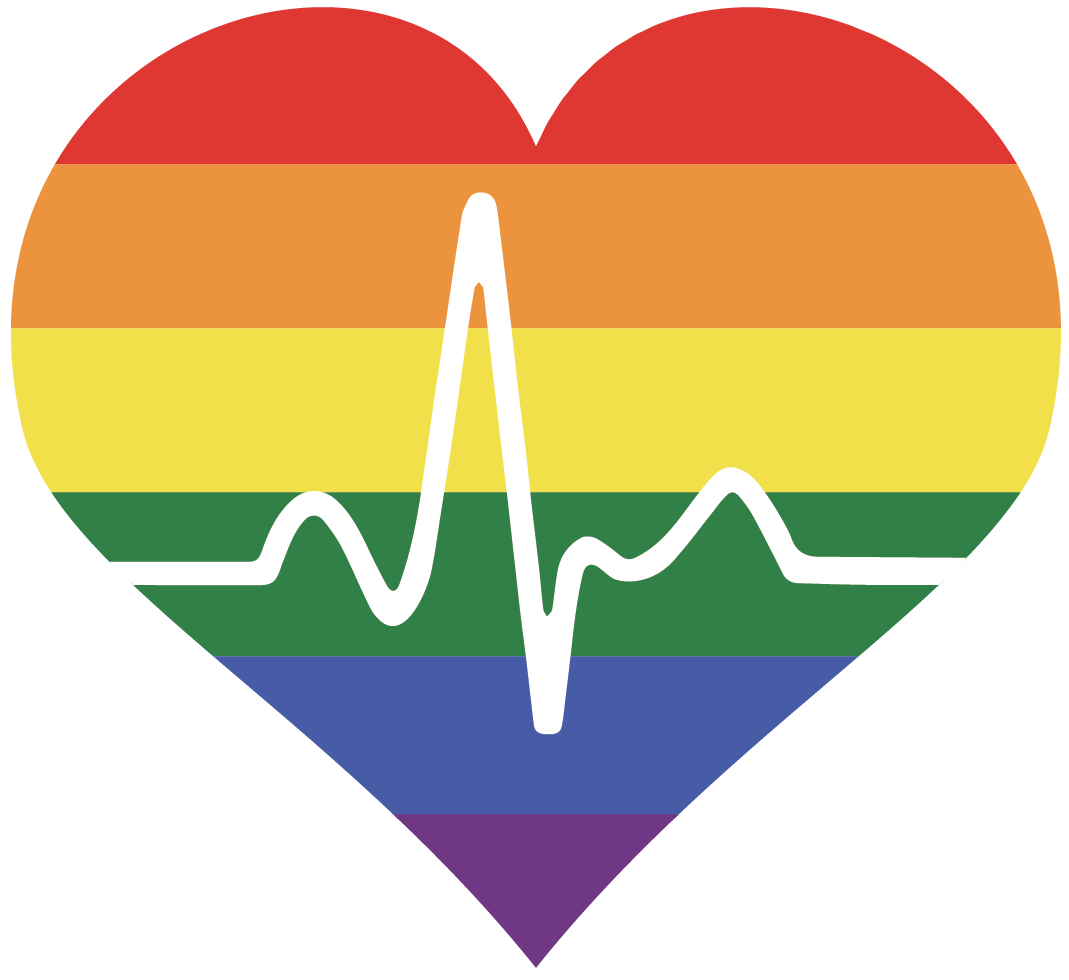
Coronavirus: LGBTQ Population at Higher
Risk
The LGBTQ
population may be at increased risk for COVID-19, the
disease caused by the new coronavirus. To get the word
out, over 100 national and local organizations have
signed an open letter initiated by a coalition of six
organizations. According to the letter, three main
factors increase the vulnerability of the LGBTQ
community to COVID-19:
--The LGBTQ population uses tobacco at rates that are
50% higher than the general population. This is relevant
because COVID-19 is a respiratory disease that is
harmful to smokers.
--The LGBTQ population has higher rates of cancer and
HIV, both of which can compromise a person’s immune
system and make someone more vulnerable to COVID-19.
--The LGBTQ population still faces discrimination,
including in health care settings. This makes many
people hesitate to seek care.
The letter also notes that because LGBTQ seniors may
fear harassment or discrimination, they are less likely
than straight elders to be involved in health and
wellness programs for seniors. Over 3 million LGBTQ
older people are living in the United States and they
are especially vulnerable to COVID-19, which has a
higher mortality rate among older people in general.
The initial signers include the National LGBTQ Cancer
Network, GLMA Health Professionals Advancing LGBTQ
Equality, Whitman-Walker Health, SAGE, New York
Transgender Advocacy Group and National Queer Asian
Pacific Islander Alliance.
COVID-19 Poses Higher Risk to LGBTQ Population
LGBTQ People Have Higher Risk of Coronavirus
Coronavirus Poses Increased Risk to LGBTQ People
Coronavirus: Added Risk to LGBTQ Community
Trump's Military Ban Ignores Science to
Inflict Harm
In
enacting the ban on transgender troops, President Trump
stated, "The US government will not accept or allow
transgender individuals to serve in any capacity in the
US military."
Dr. Juno
Obedin-Maliver is an Assistant Professor of Obstetrics
and Gynecology at Stanford University School of
Medicine. Along with Dr. Mitchell Lunn, Dr.
Obedin-Maliver is the Co-Director of The PRIDE Study,
the first large-scale, long-term national health study
of people who identify in the United States. He says
there is no rationale for the president's cruelty,
except being cruel. Here are his further comments,
as reported in Advocate Magazine:
Astounded. Alarmed. That’s how I’m feeling right now (as a doctor, as a researcher, and as a queer person) while our government threatens to erase the existence
and experiences of transgender and gender expansive
people.
Trump's transgender military ban has become reality:
openly transgender people cannot join the military — and
many who are already within its ranks can face discharge
if they receive a gender dysphoria diagnosis while
serving. According to guidelines from The Pentagon,
trans service members will be required to serve
according to “the standards associated with their
biological sex” and cannot “serve in their preferred
gender.”

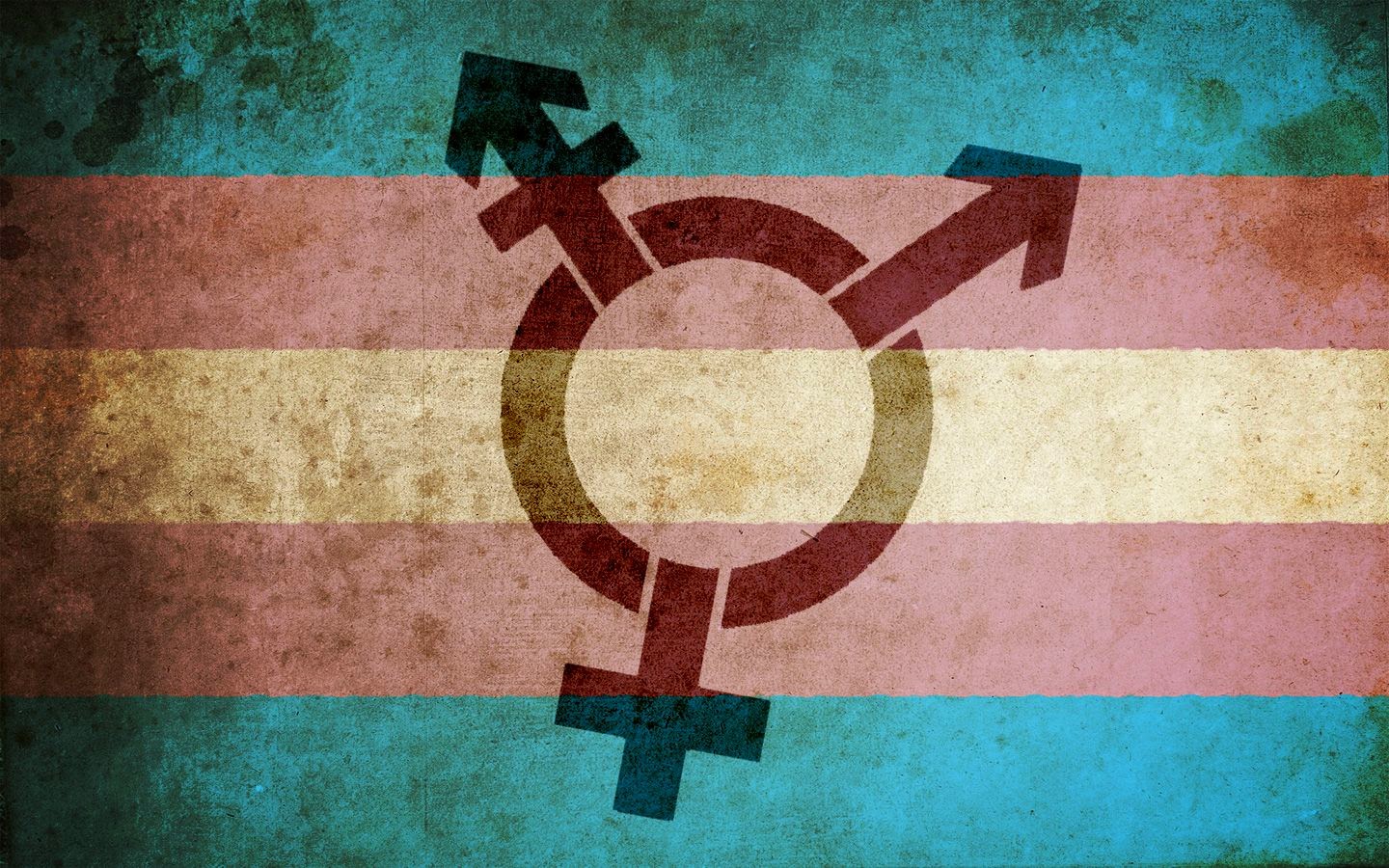
This is not a fringe issue. This is a deliberate move to
define personhood in a very particular way — a straight,
white, male cisgender-dominated, Republican, wealthy,
colonial way. But news flash: Sex is not binary. Gender
is not binary. And sex and gender don’t always match. In
short, some men have vaginas. Some women have penises.
And some people have both.
Today I worked on three projects: one about challenges
to abortion and contraception for trans masculine and
gender expansive people, one about family-building and
fertility preservation for transgender people, and
another about contraception and abortion for sexual
minority women, especially lesbian and bisexual women.
What all of these projects have in common is that they
arise from the understanding that health care is worse
when we don’t acknowledge all of who people are, and the
totality of their experiences.
That includes acknowledging the existence of more than
two genders and recognizing that people’s gender can be
potentially different from their sex assigned at birth.
When our laws define sex as either male or female, and
gender as either woman or man, real people receive worse
care, avoid care, or are harmed in the process of
getting health care. Legislating the fallacy of binary
sex won’t make things better for anyone.
In fact, there is tons of evidence that shows denying
the existence of transgender people and their health
care needs and resiliencies leads to worse health care.
On the other hand, when we call people by their affirmed
names, use their self-identified pronouns, and provide
services needed to transgender people, health outcomes
improve. Challenges to fully participate in civic life
will also become easier—whether it’s getting a job,
obtaining a driver’s license, having health insurance,
or going to school. Our country and military benefits by
more diversity, not less.
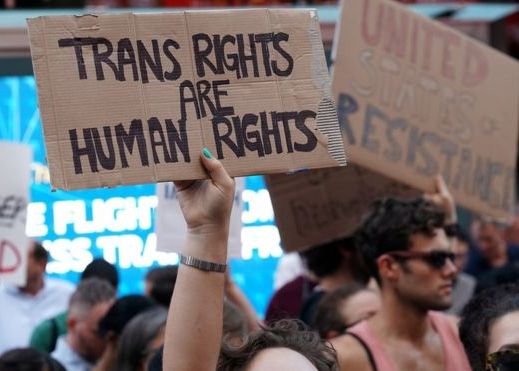

Denying the reality of who people are including that
someone’s gender and sex assigned at birth are
different, makes life unsafe. It exposes people to
violence and vitriol. When this country is unsafe for
anyone — specifically immigrants, people of color, and
transgender people (and especially folks who live in all
of these domains at the same time) — it is unsafe for us
all. We are all hurt by narrowed definitions of humanity
that only seek to limit the possibilities of life. We
are all diminished when some among us are rendered
invisible, cloaking the true diversity of nature and
humanity.
We must all fight now because our lives depend on it.
Even if you are not LGBTQ or trans specifically, we must
stand strong and be heard. Now.
This fight must be waged beyond the ballot box. Speak
out. Write op-eds. Talk to friends and families. Tell
people about the lives of trans folks and how this ban
flies in the face of science and what is supported in
medicine. Do what you can in your jobs and in your free
time. Support trans-run programs, projects, and
businesses with time, money, and visibility. Hold people
accountable to being trans-inclusive and supportive.
Teach your kids not to assume gender or ascribe gendered
activities to people. And while you’re at it, teach
yourself to do the same: it can be tough to unlearn that
life is more than either/or, but it’s not hard to
understand if you simply respect, listen, and love
people as who they are.
For the nearly 1.5 million trans people in the US, I
will keep fighting every day to make sure your lives are
recognized, respected, and that we make medicine and
health care a better place for you all and all of us in
the process. I hope you’ll join me.
[Source:
Juno Obedin-Maliver, MD, Advocate Magazine, April
2019]
More Than One-Third of Trans Kids Are at
Risk of Losing Gender-Affirming Care
Nurse's Guide to Caring for LGBTQ
Patients
NBC News: Hospitals Make Tremendous
Strides Toward LGBTQ Inclusive Care
Trump's Military Ban Ignores Science to
Inflict Harm
1 in 3 LGBTQ Adults Say They’ve Been Treated Unfairly by
a Health Care Provider
LGBTQ Healthcare: To Treat Me, You Have
to Know Who I Am
Surgeon General Says LGBTQ Youth Should
be a Priority
LGBTQ Healthcare Publications: National
LGBTQ Health Education Center
Advancing Healthcare for the LGBTQ
Community
LGBTQ
Medical Podcast: Healthlink Pridecast
Info: LGBTQ
Mental Health and Wellness
Menopause and Transgender
Unique Healthcare Vulnerabilities for
LGBTQ People
In 2010,
more than half of LGBTQ people reported being
discriminated against by a health care providers and
more than 25 percent of transgender respondents reported
being refused medical care outright. Since then, LGBTQ
people have gained protections from health care
discrimination—most notably, regulations stemming from
the Affordable Care Act have prohibited federally
funded hospitals, providers, and insurers from
discriminating against LGBTQ patients. Despite progress,
LGBTQ people, and transgender people in particular,
remain vulnerable to healthcare discrimination: In 2015,
one-third of transgender people who saw a health care
provider reported “at least one negative experience
related to being transgender.” These negative
experiences included being refused treatment or even
being physically assaulted. Transgender people of color
and people with disabilities reported particularly high
rates of discrimination from health care providers.
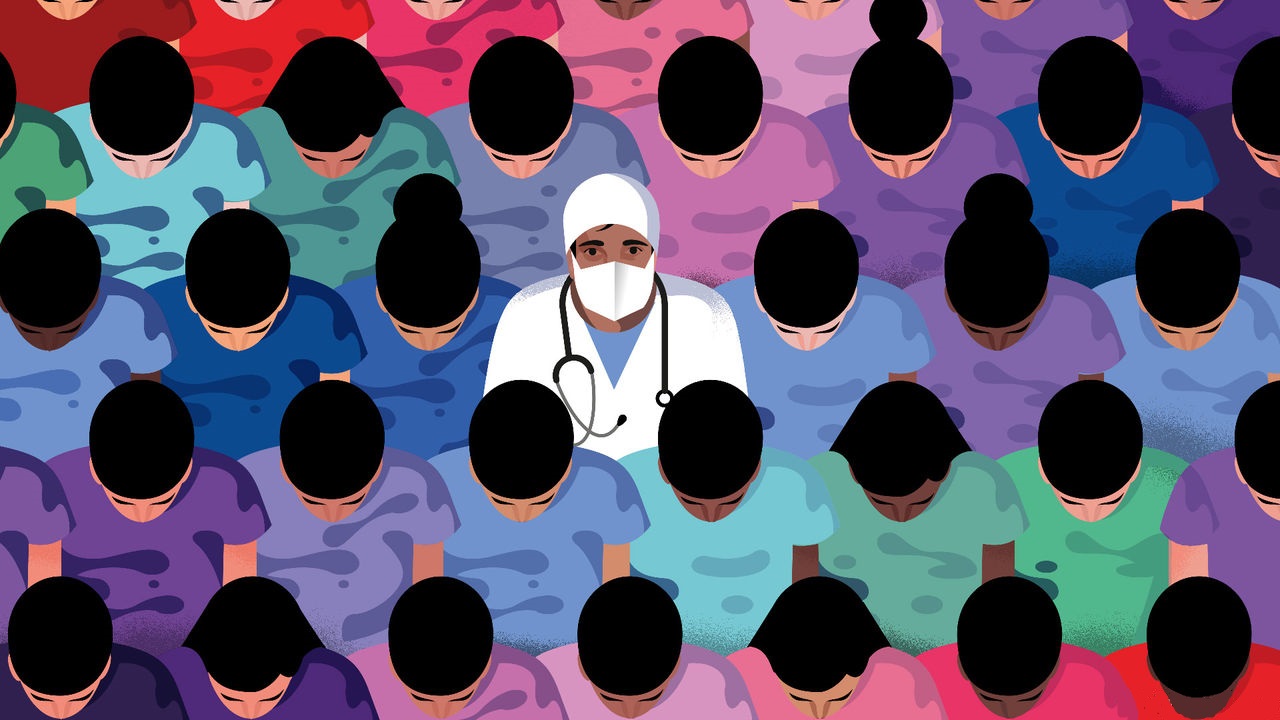
Unsurprisingly, people in these vulnerable groups are
especially likely to avoid doctor’s offices, postponing
both preventative and needed medical care:
--23.5 percent of transgender respondents avoided
doctors’ offices in the past year, versus 4.4 percent of
cisgender LGBQ respondents
--13.7 percent of disabled LGBTQ respondents avoided
doctors’ offices in the past year, versus 4.2 percent of
nondisabled LGBTQ respondents
--10.3 percent of LGBTQ people of color avoided doctors’
offices in the past year, versus 4.2 percent of white
LGBTQ respondents
These
findings are consistent with research that has also
identified patterns of health care discrimination
against people of color and disabled people. For
example, one survey of health care practices in five
major cities found that more than one in five practices
were inaccessible to patients who used wheelchairs.
[Source: Sejal Singh and Laura E. Durso, May 2017]
Stanford Medicine:
The Pride Study
Australia Launches 10 Year Action Plan for LGBTQ Health
Heteronormativity in Health Care is
Harmful for LGBTQ Patients
Trump's Military Ban Ignores Science to
Inflict Harm
SAMHSA: Top Health Issues for LGBTQ
Populations
Advancing Healthcare for the LGBTQ
Community
Info: LGBTQ
Mental Health and Wellness
Conscience Rule Will Threaten LGBTQ
Healthcare
LGBTQ Healthcare: To Treat Me, You Have
to Know Who I Am
Creating
LGBTQ Friendly Communities in Healthcare
and Education
National LGBTQ Cancer
Network
Seemingly Harmless Habits That May
Increase Your Risk Of Dementia
LGBTQ Health
Report
The
Division of Gender, Sexuality & Health, at the New York
State Psychiatric Institute and the Columbia University
Department of Psychiatry, wrote this report regarding
LGBTQ health issues.
Background
Over the past decade, and especially in the past few
years, there have been sweeping changes in US society,
law, and public policy, including the following:
--In 2003, the Supreme Court invalidated all remaining
anti-sodomy laws in its ruling in Lawrence v. Texas.
--In 2004, individual states began adopting same-sex
marriage.
--In 2010, the “It Gets Better” online campaign was
launched, a signal of growing societal support for LGBTQ
youths, parents, and families. It now has over 50,000
videos and 50 million views on YouTube.
--In 2011, the federal government repealed the “Don’t
Ask, Don’t Tell" policy in the military and articulated
LGBTQ rights as a foreign policy goal.
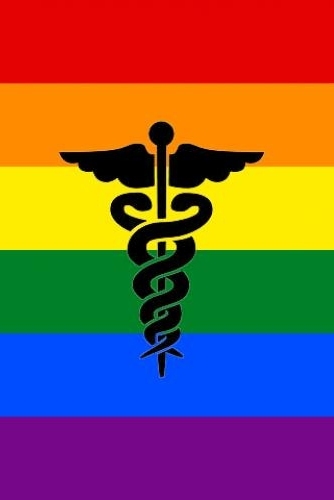

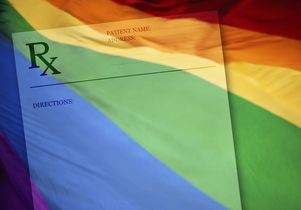
LGBTQ Health
Link
US Health & Human Services Reports: LGBTQ Health and
Wellbeing
Ethical Guidelines for Professionals Working With LGBTQ
Clients
Info: Reparative
Therapy
SAMHSA: Top Health Issues for LGBTQ Populations
Foundation for Better Understanding: The
Health of LGBTQ People
Huff Post: LGBTQ Wellness
I Have to Show You Something
Stanford Medicine:
The Pride Study
--In 2011, the Institute of Medicine (IOM) released a
report on the health of LGBTQ people. Federal agencies
such as CDC, SAMHSA, and others have also highlighted
the issue.
--In 2012, marriage equality was endorsed by President
Obama, the Democratic Party’s platform, and a plurality
of poll respondents.
--In 2013, President Barack Obama, in his second
inaugural address, articulated equality for a LGBTQ
people as a priority area of his administration.
--In 2013, the Supreme Court allowed the restoration of
marriage equality in California and struck down the
provision of the Defense of Marriage Act (DOMA) that
prohibited the federal government from recognizing
married same-sex couples.
--In 2014, a range of challenges to state same-sex
marriage bans are being pursued and the federal
government continues to proactively implement the
Supreme Court's partial overturning of DOMA.
--In 2015,
the US Supreme Court legalizes same-sex marriage
nationwide.

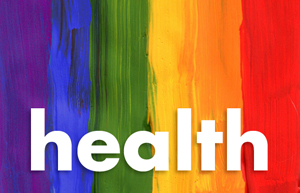 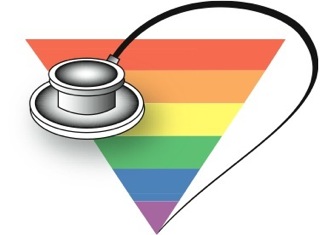
USA Today: LGBTQ Tolerance Survey by GLAAD
CDC: Gay and Bisexual
Men's Health
Heteronormativity in Health Care is
Harmful for LGBTQ Patients
Seemingly Harmless Habits That May Increase Your Risk Of
Dementia
Graph: GLAAD Tolerance Survey
Center for American Progress: Widespread
LGBTQ Discrimination
USA Today: Review of LGBTQ Equality Over
the Past Decade
Battles the LGBTQ Community is Still
Fighting
Human Rights Watch: Anti-LGBTQ Laws
Around the World
Troubling
Statistics
Despite these advances, the health and mental health of
lesbian, gay, bisexual, transgender, and queer (LGBTQ)
individuals has emerged as a major concern across the
nation. Numerous examples of stigmatization,
discrimination and health inequities have been
documented, including the following:
--Increased rate of suicide attempts and of homelessness
among LGBTQ youth (Estimates indicate that as many as
40% of homeless youth are LGBTQ).
--Decreased utilization by lesbians of preventive
services for cancer and increased risk factors and
elevated rates of cancer (Estimated relative risk of
invasive breast cancer among lesbians is 1.74).
--Higher risk of HIV and STDs among gay men, especially
in communities of color (From 2006-2009, gay men
accounted for 56-61% of all new HIV infections; MSM
13–29 represented more than 27% of all new HIV
infections; among MSM 13-29, HIV among black MSM was up
48%).
--High prevalence among transgender individuals of
HIV/STDs, victimization, mental health issues, and
suicidal ideation (41% of trans respondents reported
suicide attempt vs. 1.6% of the general population; 23%
were impacted by at least three major life-disrupting
events due to bias.)
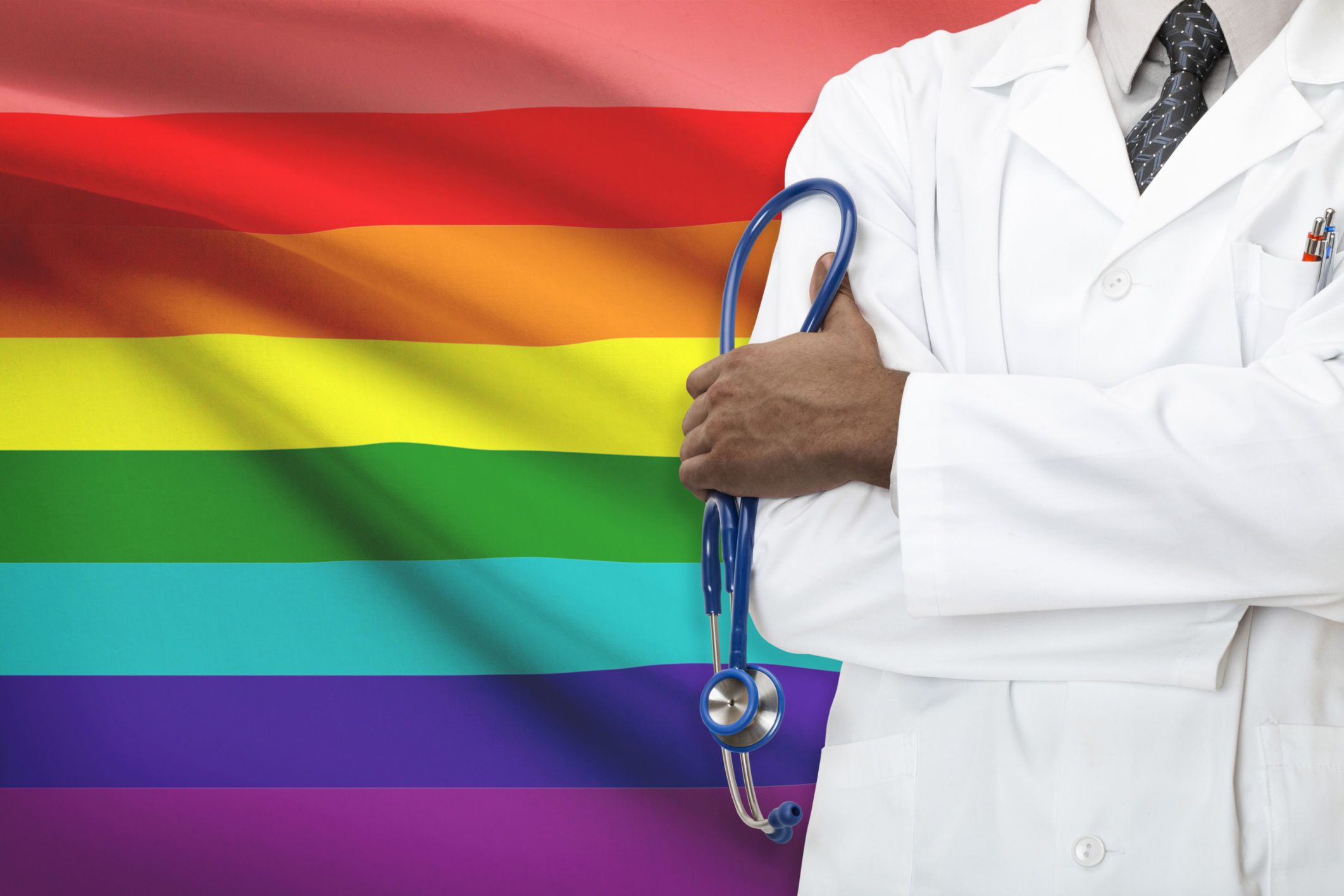
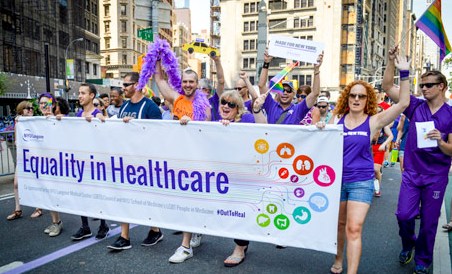
--Barriers to health faced by elderly LGBTQ individuals
because of isolation, and lack of social services and
culturally competent providers (Older LGBTQ people are 2
times as likely to live alone; 1/3 plan to hide LGBTQ
status if in long-term care).
Higher rates of mental health morbidities and tobacco,
alcohol, other drug use (Alcohol abuse and smoking are
more than 2 times greater among LGBTQ people).
--A significant proportion of people with serious mental
illness (SMI) in the US are LGBTQ (Estimates suggest
that about 720,000, or about 4% of people with SMI, are
LGBTQ).
At the same time, new areas of concern are also emerging
across the lifespan, such as:
--children "coming out" at ever-younger ages.
--schools trying to tackle the problem of bullying.
--early medical interventions becoming available for
transgender youth.
--new family dynamics emerging among same-sex couples
who are legally married and/or who are raising children.
--the first large cohort of openly LGBTQ people becoming
senior citizens.
These are
no longer merely potential or emerging issues with
regard to mental and physical health. Rather, they are
immediate and pressing needs demanding focused efforts
in research, clinical practice, education, and public
policy. Yet far too few LGBTQ individuals, particularly
from within poor and marginalized communities have
access to the quality services they need. Through the
LGBTQ Health Initiative, we aim to address these and
many other related issues.
Folx Health
HHS: LGBTQ Health and Wellbeing
HRC: Healthcare
Equality Index 2018
Five Things to Know for Optimizing LGBTQ
Health
Info: Aging/Elder Care
Creating LGBTQ Friendly
Communities in Healthcare and Education
National LGBTQ Cancer
Network
2016 Was a Banner Year for AIDS/HIV Research
National LGBTQ Cancer
Network
Info: Safe Sex
Pediatrician Group Endorses Affirming Care for Trans
Youth
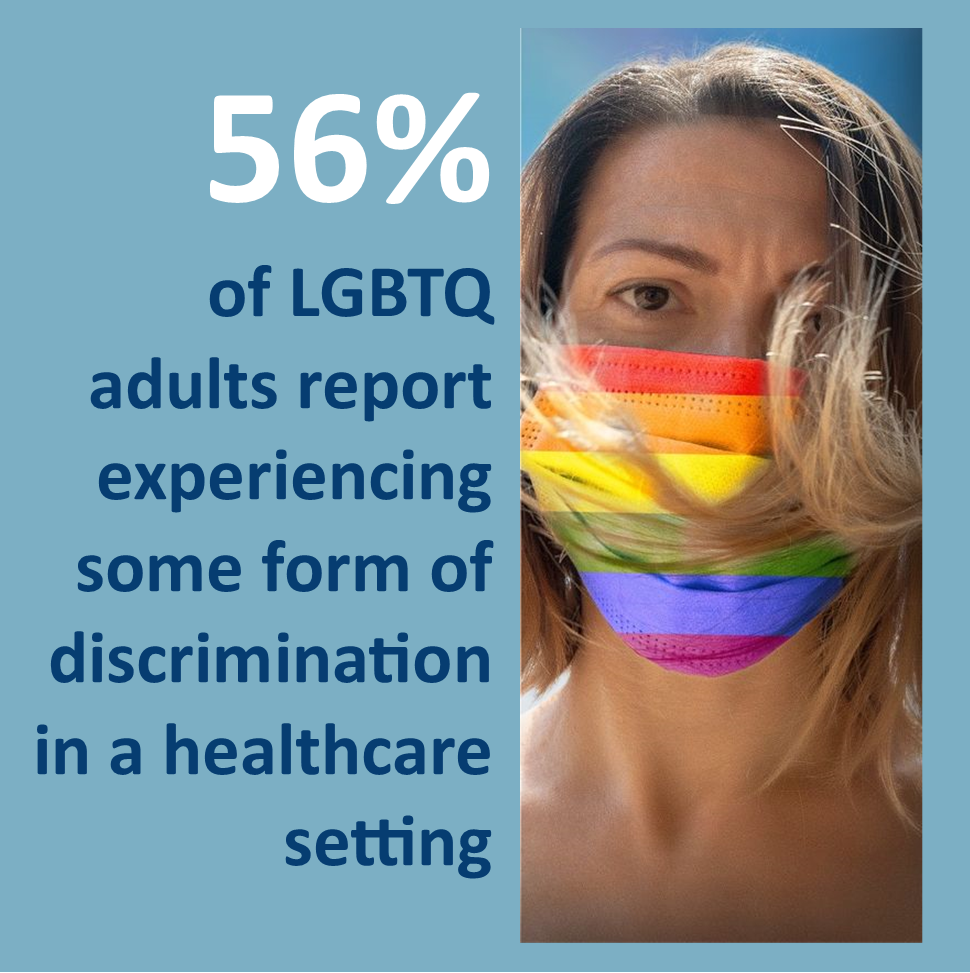
LGBTQ Access to
Care and Coverage
Lesbian, gay, bisexual, transgender, and queer (LGBTQ)
individuals often face challenges and barriers to
accessing needed health services and, as a result, can
experience worse health outcomes. These challenges can
include stigma, discrimination, violence, and rejection
by families and communities, as well as other barriers,
such as inequality in the workplace and health insurance
sectors, the provision of substandard care, and outright
denial of care because of an individual’s sexual
orientation or gender identity.
While sexual and gender minorities have many of the same
health concerns as the general population, they
experience certain health challenges at higher rates,
and also face several unique health challenges. In
particular, research suggests that some subgroups of the
LGBTQ community have more chronic conditions as well as
higher prevalence and earlier onset of disabilities than
heterosexuals. Other major health concerns include
HIV/AIDS, mental illness, substance use, and sexual and
physical violence. In addition to the higher rates of
illness and health challenges, some LGBTQ individuals
are more likely to experience challenges obtaining care.
Barriers include gaps in coverage, cost-related hurdles,
and poor treatment from health care providers.
[Source: Kaiser Family Foundation, 2015]
National LGBTQ
Cancer Network
Info: Alcohol/Drug Abuse
LGBTQ and Public Health
Info: LGBTQ Mental Health
CDC: Gay and Bisexual
Men's Health
NIH: Launches Call for Input on LGBTQ Health
HRC: Healthcare
Equality Index 2018
CDC: LGBTQ
Health
SAMHSA: Top Health Issues for LGBTQ Populations
Info: AIDS/HIV
Gay & Lesbian Health
Association
Stanford Medicine:
The Pride Study
Australia Launches 10 Year Action Plan for LGBTQ Health

LGBTQ Medical
Issues
LGBTQ individuals are as diverse as the general
population in terms of race, ethnicity, age, religion,
education, income, and family history. A number of
health concerns are unique to or shared by the LGBTQ
community, however, including an increased risk of
certain cancers, infectious and sexually transmitted
diseases (STDs), and mental health disorders; issues
relating to nutrition and weight, tobacco use, and
substance abuse; and discrimination by health care and
insurance providers.
The definitions of different sexual identities have
shifted over the years, as have the perceptions and
stereo-types of the general population. Because of the
wide range of behaviors and identities that exist in the
LGBTQ community, it is difficult to develop an inclusive
definition. It is generally accepted, however, that gay
men and lesbians are sexually attracted to or
participate in sexual behaviors with individuals of the
same gender, while bisexual men and women are sexually
attracted to or participate in sexual behaviors with
individuals of both genders. Transgender individuals
live part- or full-time in a gender role opposite to
their genetic sex.
It is estimated that approximately 2.8% of men and 1.4%
of women identify as being gay, lesbian, or bisexual
while 9.1% of men and 4.3% of women have participated in
sexual behavior with someone of the same gender at least
once. The true extent of the transgender community has
not been well researched in the United States; one study
from the Netherlands in 1993 found that one in 11,900
males and one in 30,400 females are transgender.
Info: Safe Sex
Reporting on Health: LGBTQ Health Issues
Healthline: Gay and Lesbian Health
Info: Reparative
Therapy
Stanford Medicine:
The Pride Study
Doing the Right Thing for
Transgender Health
PrEP Directory Goes Live
LGBTQ Health Professional
Journal
Info: Ageing/Elder Care
Nurse's Guide to Caring for LGBTQ Patients
National LGBTQ Cancer
Network
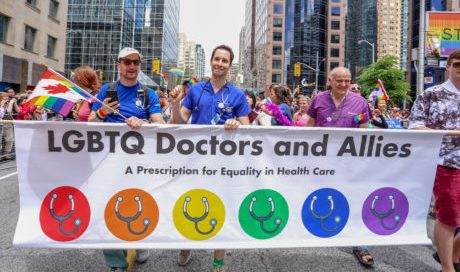
LGBTQ People and
Mental Health
Issues
Most LGBTQ people have had mental health issues because
of their jobs. Mental health issues in the workplace are
a common occurrence for LGBTQ people, according to a
poll conducted by YouGov on the behalf of Business in
the Community and Mercer.
72% percent of LGBTQ employees have experienced mental
health issues as a result of their workplace.
The survey
also showed that a little more than a quarter of LGBTQ
employees are not open about their sexual orientation in
the workplace, and 28% of LGBTQ upper management and
owners have been encouraged to hide their sexual
orientation.
What’s more, people of color who were also LGBTQ were
twice as likely to face negativity from customers and
clients than their white LGBTQ counterparts.
Customers or colleagues have physically attacked 7% of
LGBTQ workers, with that number rising to 13% among
blue-collar workers. That also includes 15% of people of
color, 20% of non-binary identified people, and 30% of
seniors.
Additionally, 9% felt that being seen as LGBTQ prevented
them from getting a job or a promotion, with 6% saying
that it as a significant factor losing a job in the past
year.
According to the report, good employee mental health is
crucial to running a successful, sustainable
organization. These numbers point to failures in
handling employee mental health, particularly for LGBTQ
and other minority populations in the workplace.
The report, titled “Seizing the Moment,” is Business in
the Community’s 2018 report on mental health at work.
[Source: Gwendolyn Smith, LGBTQ Nation, October 2018]
Heteronormativity in Health Care is
Harmful for LGBTQ Patients
On the Job: LGBTQ People and Mental Health Issues
NAMI:
How Mental Health Conditions Affect LGBTQ Community
Family Doctor: LGBTQ Mental Health Issues
LGBTQ Healthcare: To Treat Me, You Have to Know Who I Am
Ethical Guidelines for Professionals Working With LGBTQ
Clients
Info: LGBTQ Mental Health
Mental Help: Mental Health in the LGBTQ Community
Counseling Today: Promoting LGBTQ Wellness
Creating LGBTQ Friendly
Communities in Healthcare and Education
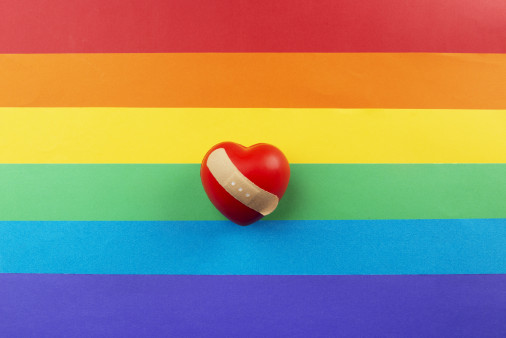
Puberty Blockers
Puberty blockers (puberty inhibitors, puberty
suppressors, hormone suppressors) are a group of
medications used to inhibit puberty. They were
originally used to treat children with precocious
puberty or other such early onset of puberty. Puberty
blockers are commonly used for the transgender
community. In this community, puberty blockers are used
to provide transgender youth with time to further
explore their identity, while halting the development of
their predisposed sex characteristics caused by the
onset of puberty.
The medication that is used in order to stop puberty
comes in two forms: injections or an implant.
Puberty blockers prevent the development of biological
secondary sex characteristics. They slow the growth of
sexual organs and production of hormones. Other effects
include the suppression of male features of facial hair,
deep voices, and Adam's apples for children and
adolescents and the halting of female features of breast
development and menstruation.
Transgender youth are a specific target population of
puberty blockers. Gonadotropin-releasing hormone (GnRH)
agonists (leuprorelin, histrelin) to halt puberty, can
be used for transgender youth before the development of
natal secondary sex characteristics.
Puberty blockers serve the transgender community by
giving future trans men and trans women more time to
solidify their gender identity, without developing
secondary sex characteristics. If a child later decides
not to transition to another gender, the effects of
puberty blockers can be reversed by stopping the
medication. Another function of puberty blockers is that
it gives the future transgender individual a smoother
transition into their desired gender identity as an
adult.
Wikipedia: Puberty Blockers
Health Topic: Blocking Puberty in Transgender Youth
Video: Struggles of Transgender Youth
AMA: Suppression of Puberty in transgender Children
Info: Transgender
Puberty Blockers and Hormones for Trans Kids
Video: Trans Youth Share Struggles and Hopes
LGBTQ Health
Issues and Sexual Concerns
There are a number of issues that arise when trying to
define sexual orientation. Many gay men and lesbians
have participated in or continue to participate in
sexual activities with members of the opposite sex but
choose not to identify as heterosexuals or bisexuals.
Others have never participated in sexual activities at
all yet still identify as gay, lesbian, or bisexual.
Some men and women identifying as bisexuals are in
long-term, monogamous relationships with individuals of
the same or opposite sex. Male-to-female (MTF) or
female-to-male (FTM) transgender individuals may or may
not identify themselves as gay or lesbian.

The
implications of these identity issues are far-reaching.
Misdiagnoses or improper medical recommendations might
come from health care providers who have mistakenly
assumed sexual behaviors or risks from the patient's
stated identity. For example, a provider might
incorrectly assume that a lesbian patient has never had
sexual intercourse with a male and therefore would not
have contracted STDs not normally transmitted by sexual
activities between women. It has been difficult to
closely estimate the numbers of LGBTQ individuals in the
United States because of varying definitions. Likewise,
the statistics in medical or social studies and surveys
on LGBTQ issues might vary widely depending on what
definitions were provided for the respondents. Because
of this, many researchers have opted for the more
inclusive terms of "men who have sex with men" (MSM) and
"women who have sex with women" (WSW) to categorize gay,
lesbian, and bisexual respondents.
Info: Reparative
Therapy
HRC Healthcare Equality Index
Advancing Healthcare for the
LGBTQ Community
National LGBTQ Cancer Network
Info: AIDS/HIV
Gay & Lesbian Medical
Association
CDC: Gay and Bisexual
Men's Health
How Medical Schools Are Failing
the LGBTQ Community
Stanford Medicine:
The Pride Study
SAMHSA: Top Health Issues for LGBTQ Populations
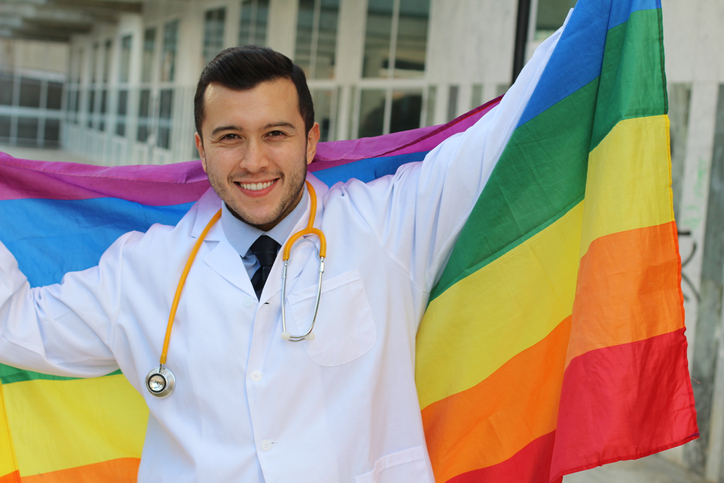
LGBTQ Health and
Coming Out
Many LGBTQ individuals have difficulty revealing their
sexual identity ("coming out") to their health care
providers. They may fear discrimination from providers
or believe that their confidentiality might be breached.
In some cases health care workers have been poorly
trained to address the needs of LGBTQ individuals or
have difficulty communicating with their LGBTQ patient
(one study indicated that 40% of physicians are
uncomfortable providing care for gay or lesbian
patients). In addition, many questions posed in
questionnaires or examinations are heterosexually biased
(asking a lesbian which birth control methods she uses
or a gay man if he is married, single, or divorced).
Other reasons why LGBTQ individuals are often hesitant
to share their sexual identity are more logistical. Many
insurance companies deny benefits to long-term partners
on the basis that they are not married. LGBTQ patients
may have inadequate access to health care, either
because they live in a remote rural area or in the
crowded inner city. Some same-sex partners encounter
discrimination in hospitals and clinics when they are
denied the rights usually given to spouses of a patient
such as visiting, making medical decisions, and
participating in consultations with physicians.
Understanding & Eliminating Health Disparities in the
LGBTQ Community
Kaiser Family Foundation: LGBTQ Health & Access to Care &
Coverage
APA: LGBTQ Health Disparities
US Office of Disease Prevention & Health Promotion: LGBTQ
Health Update
Ethical Guidelines for Professionals Working With LGBTQ
Clients
Foundation for Better Understanding: The
Health of LGBTQ People
Info: LGBTQ Mental Health
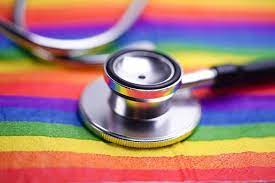
LGBTQ Medical
Notes: Risk Factors
Some of the health concerns and risk factors that are
relevant to LBGTQ individuals may be shared by the
general population, while others are more specific to
the LGBTQ community, and still others are specific to
different subgroups of LGBTQ individuals. These health
concerns may be grouped into the following areas of
concern:
Sexual behavior issues: STDs such as human
immunodeficiency virus (HIV) and acquired immune
deficiency syndrome (AIDS), hepatitis A virus (HAV),
hepatitis B virus (HBV), bacterial vaginosis, gonorrhea,
chlamydia, and genital warts (human papillomavirus or
HPV); anal, ovarian, and cervical cancer.
Cultural issues: body image, nutrition, weight, and
eating disorders; drug and alcohol abuse; tobacco use;
parenting and family planning.
Discrimination issues: inadequate medical care;
harassment at work, school, or home; difficulty in
obtaining housing, insurance coverage, or child custody;
violence.
Sexual identity issues: conflicts with family, friends,
and work mates; psychological issues such as anxiety,
depression, and suicide; economic hardship.
NBC News: Hospitals Make Tremendous
Strides Toward LGBTQ Inclusive Care
Trump's Military Ban Ignores Science to
Inflict Harm
LGBTQ Healthcare: To Treat Me, You Have
to Know Who I Am
Surgeon General Says LGBTQ Youth Should
be a Priority
HRC: Healthcare
Equality Index 2018
Seemingly Harmless Habits That May Increase Your Risk Of
Dementia
World Health Organization: Transgender Not a Disorder
LGBTQ Wellness: Take
Pride in Your Health
Info: Living With AIDS/HIV
Queer
Artists Changing Our View of Sexual
Health
LGBTQ Healthcare Publications: National
LGBTQ Health Education Center
I Have to Show You Something

HOME
QUEER CAFE
│ LGBTQ Information Network │ Established 2017 |